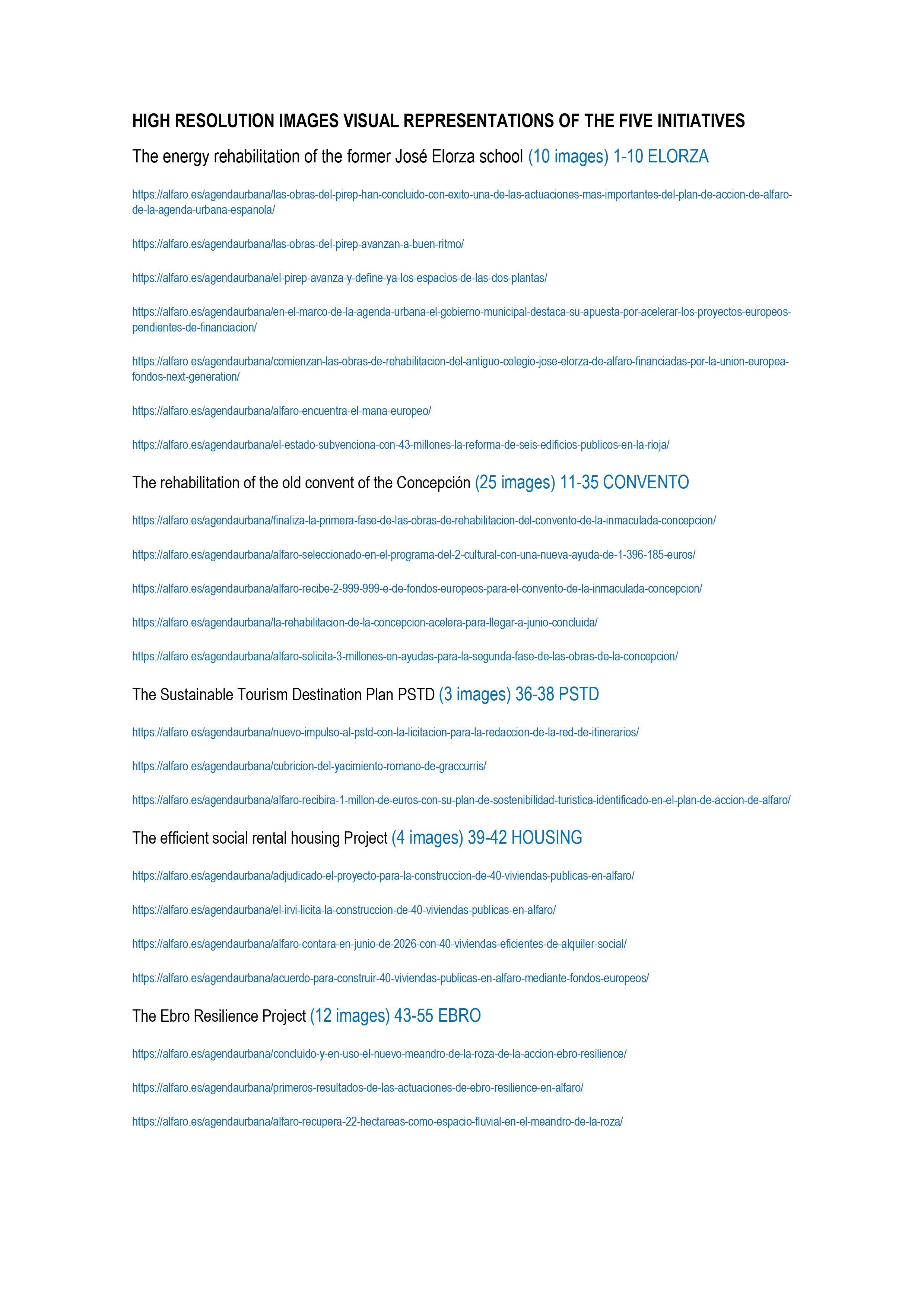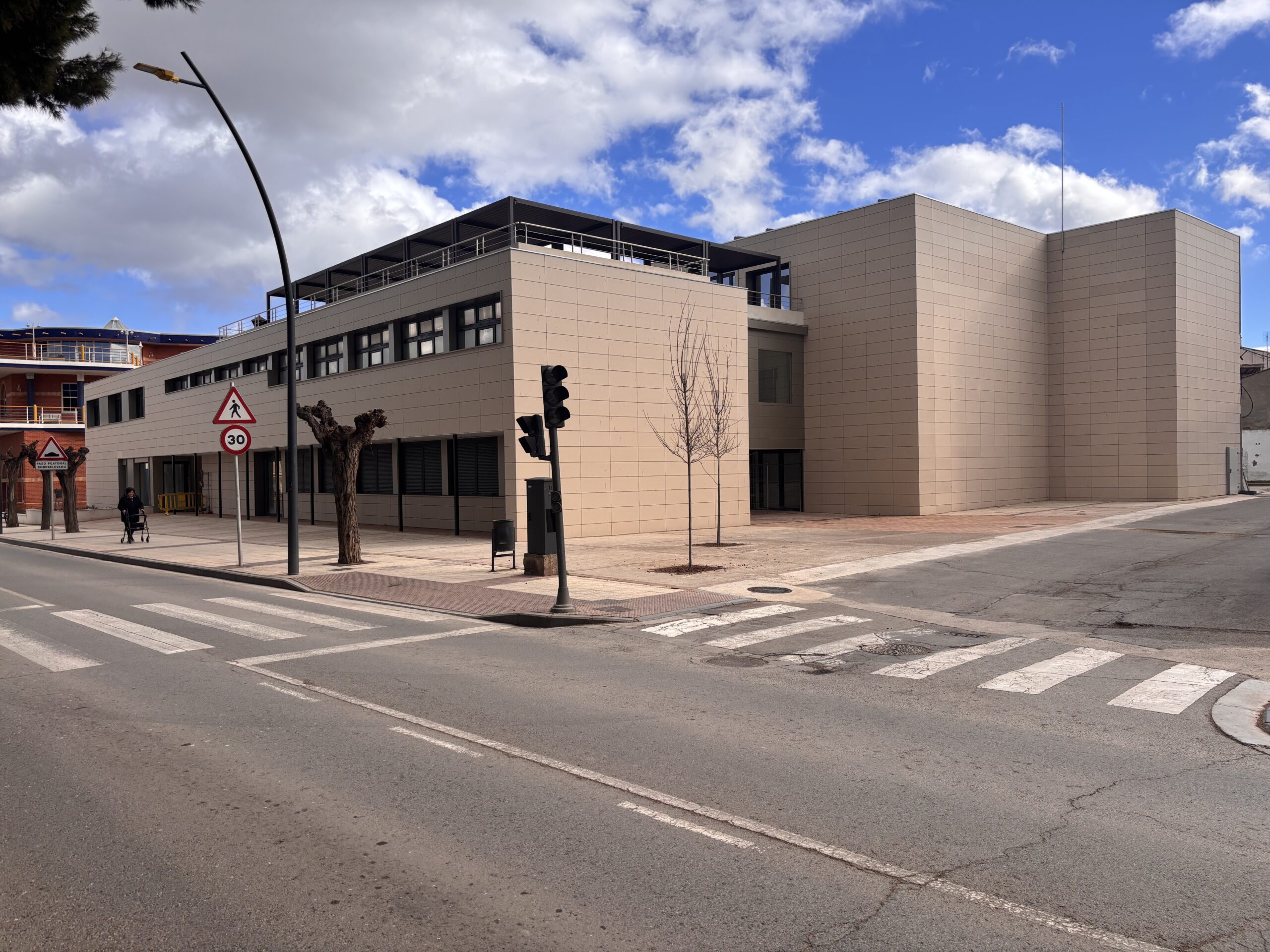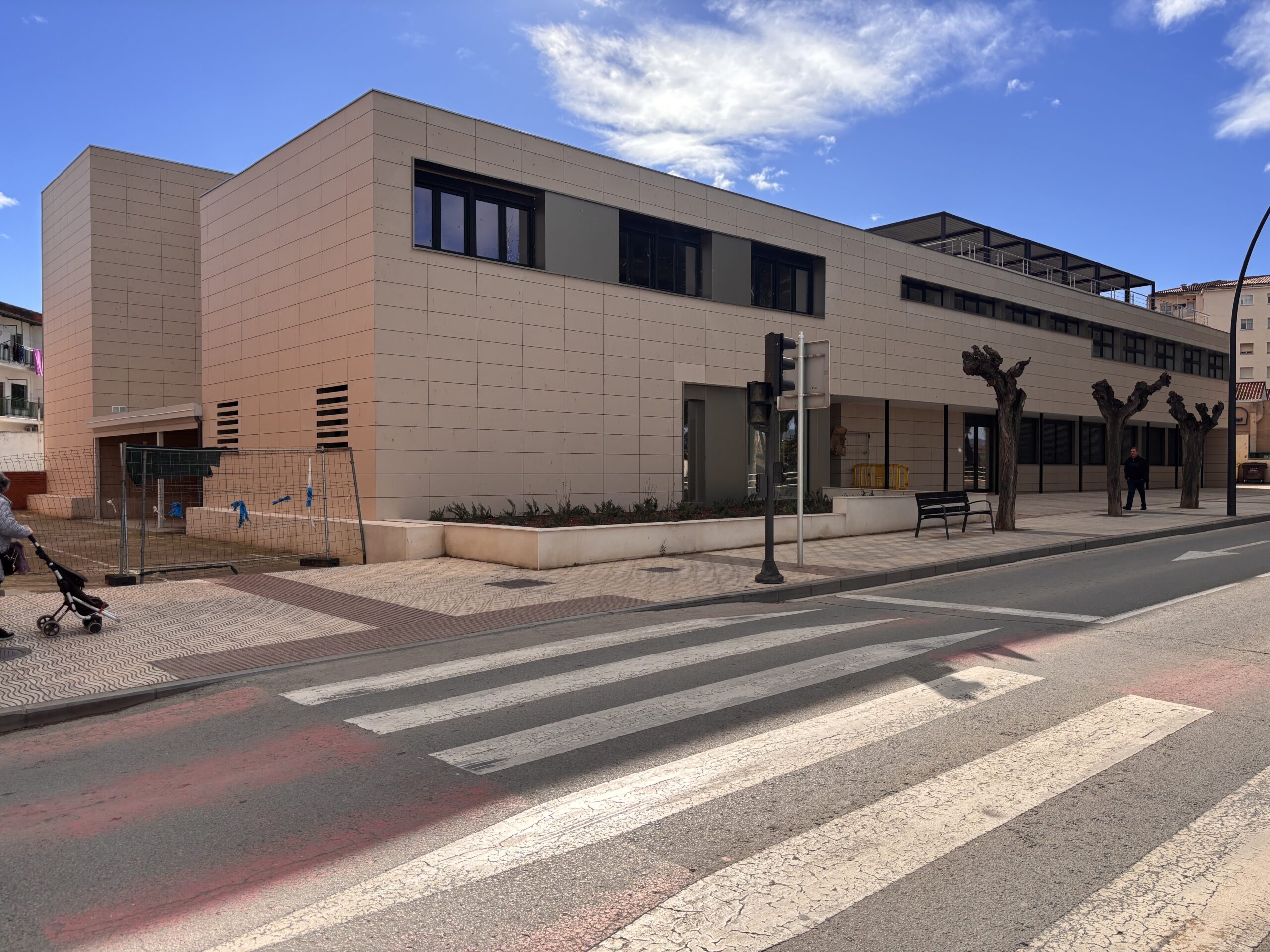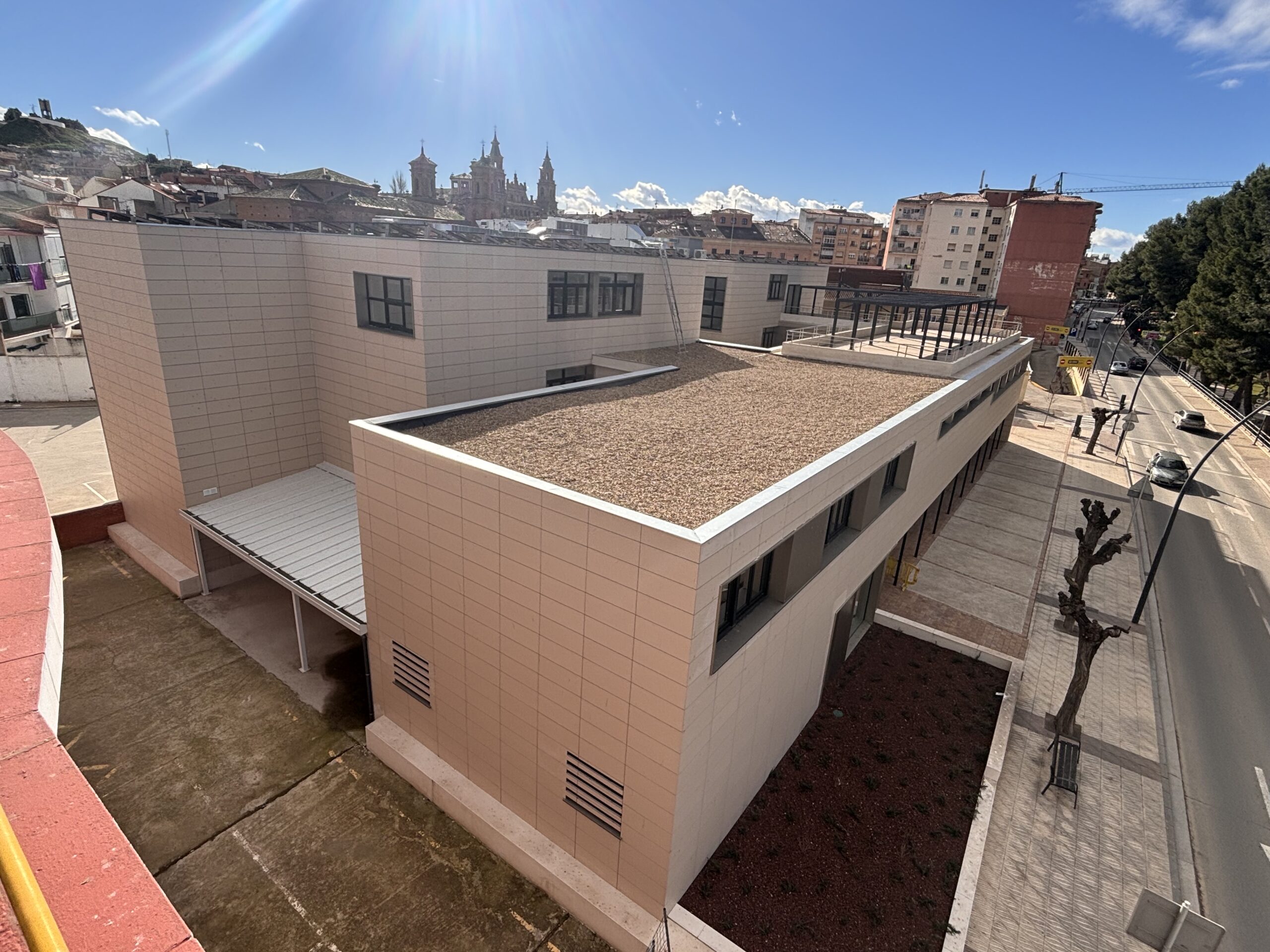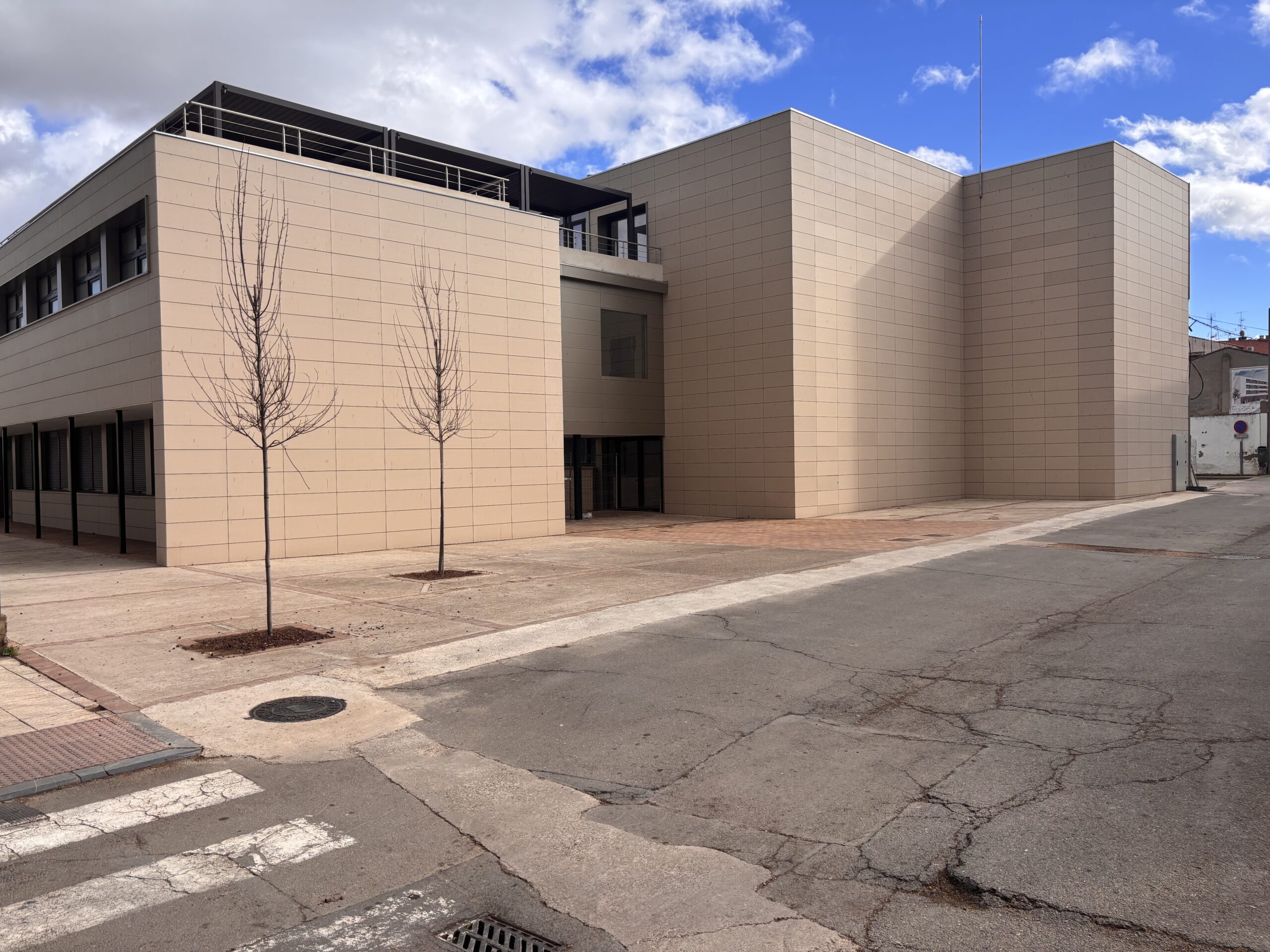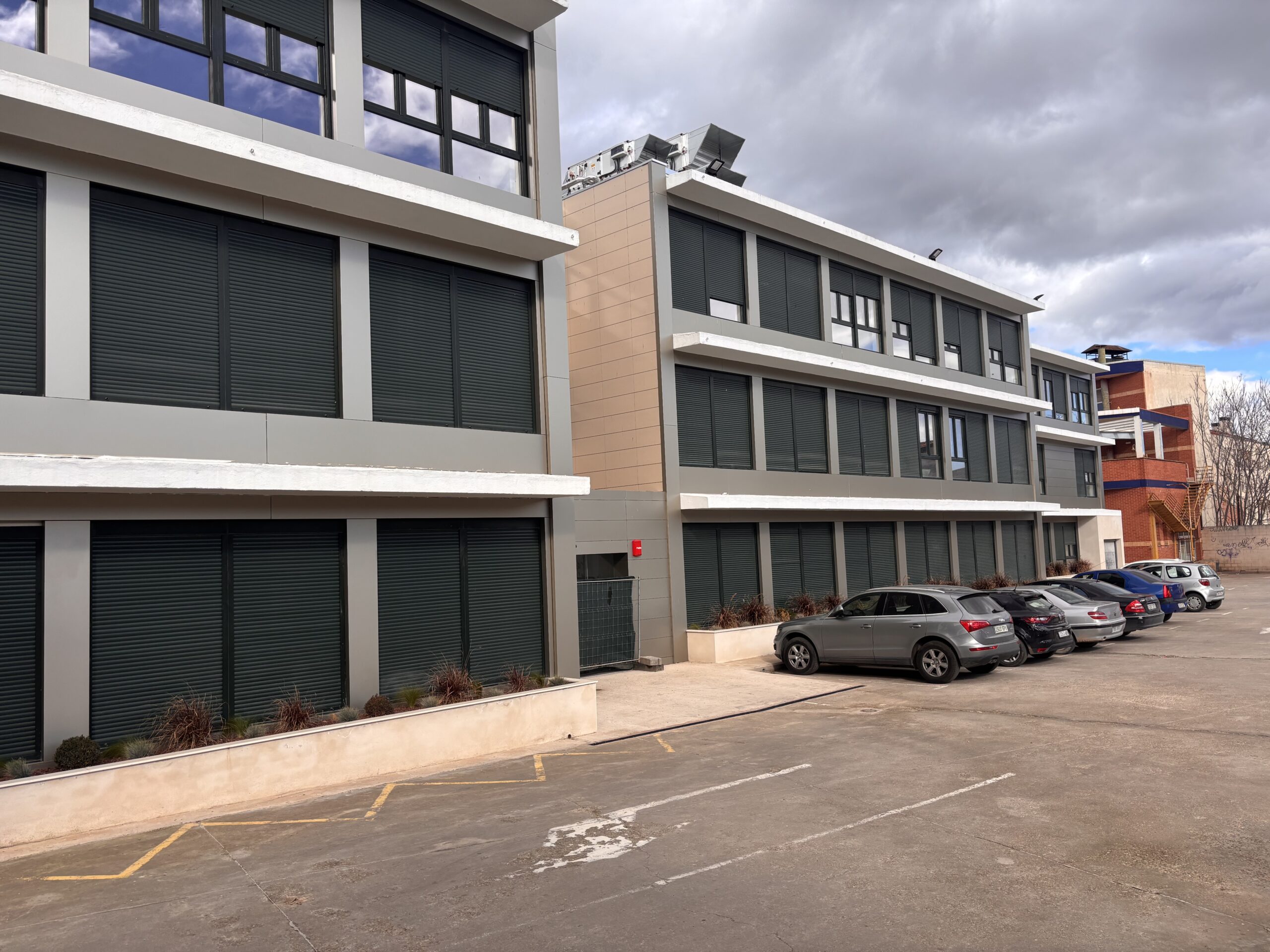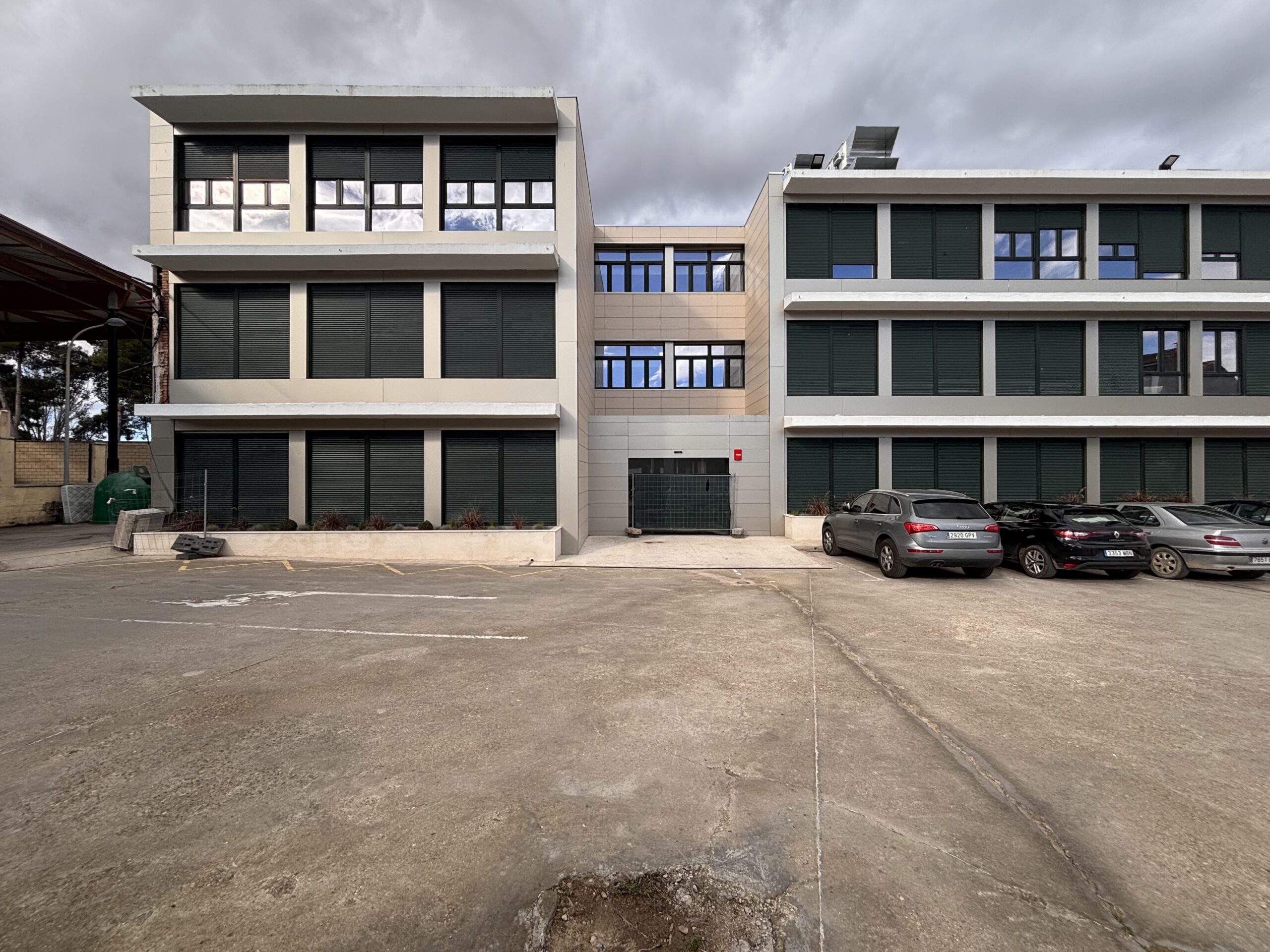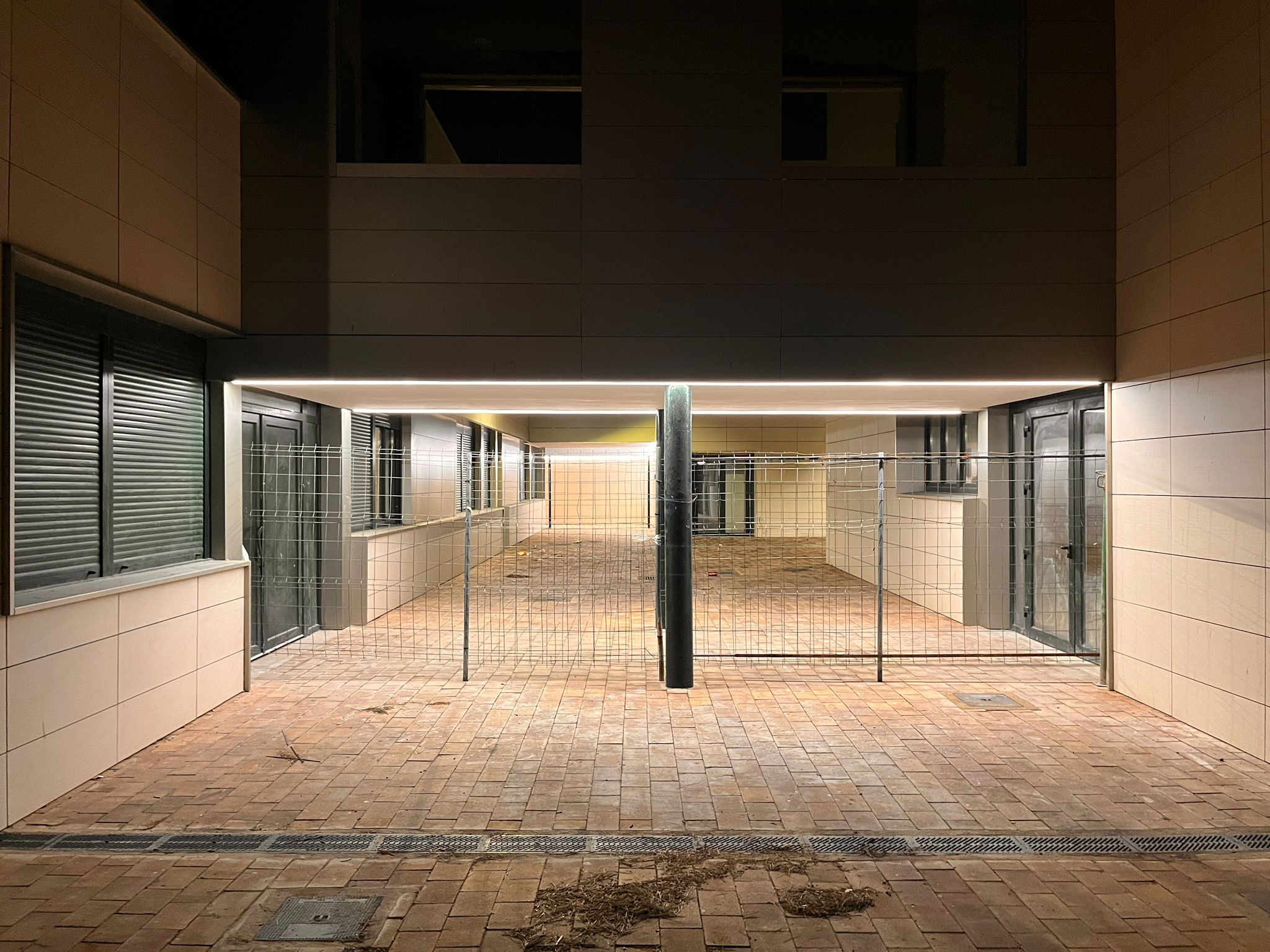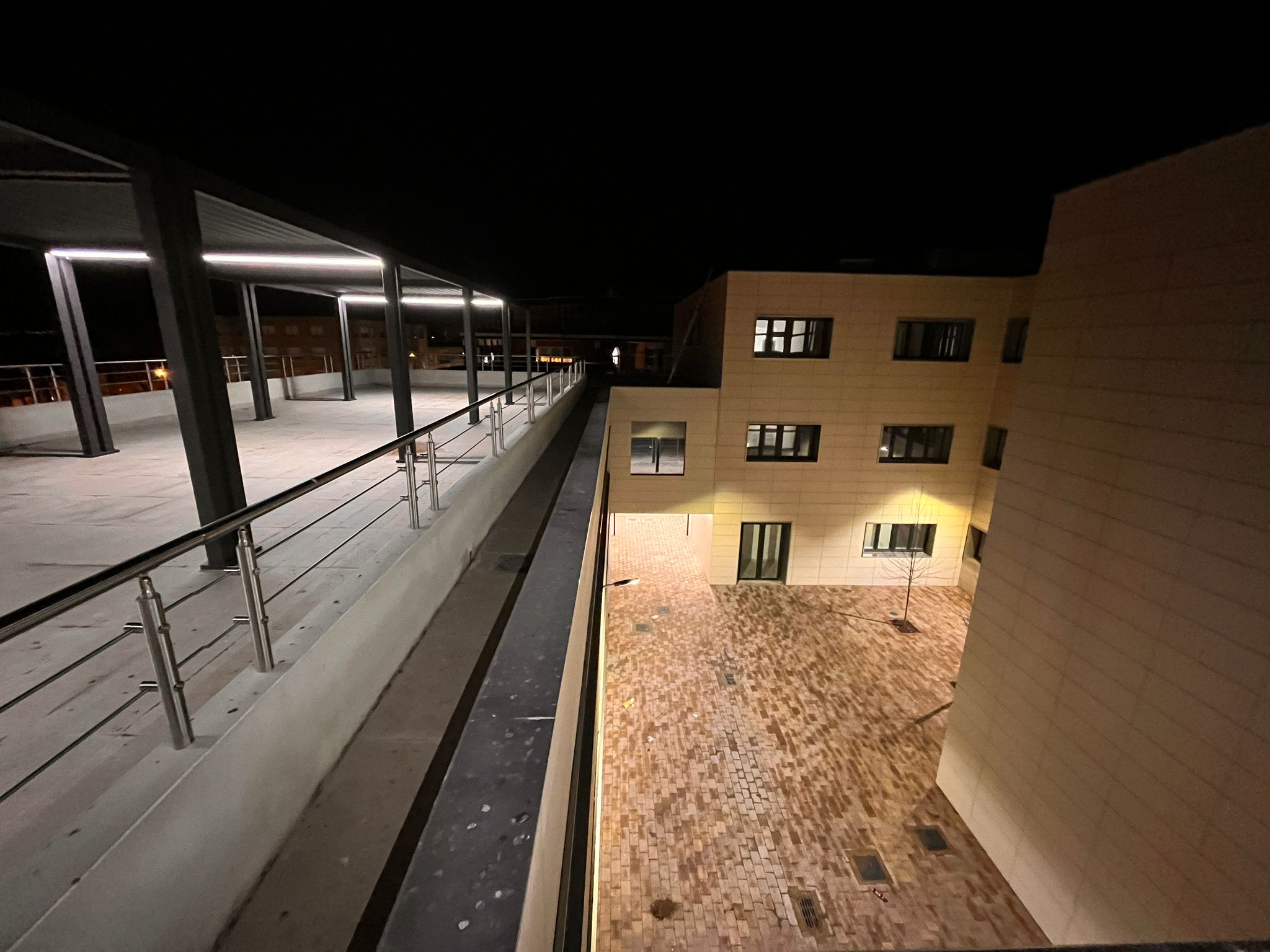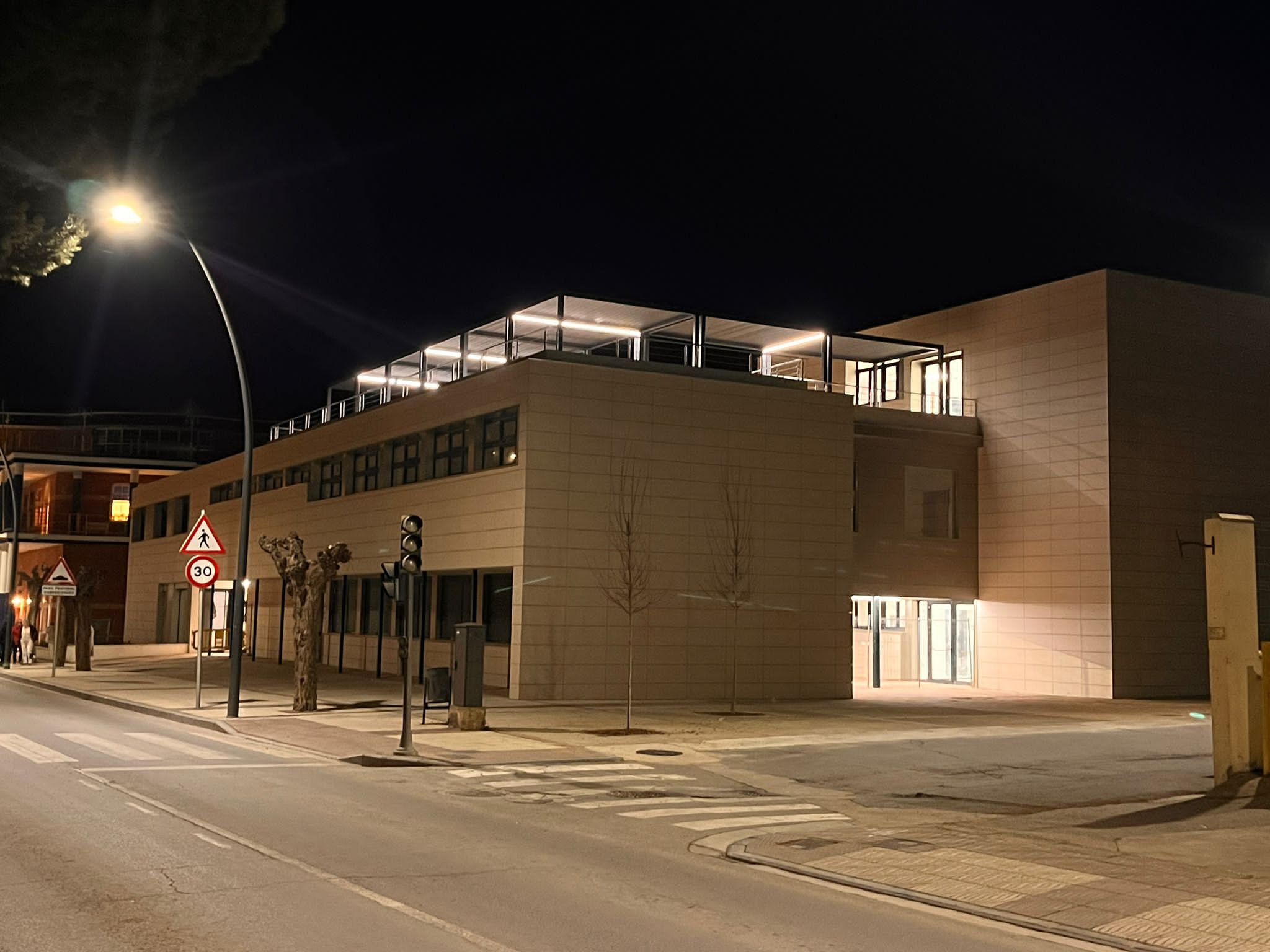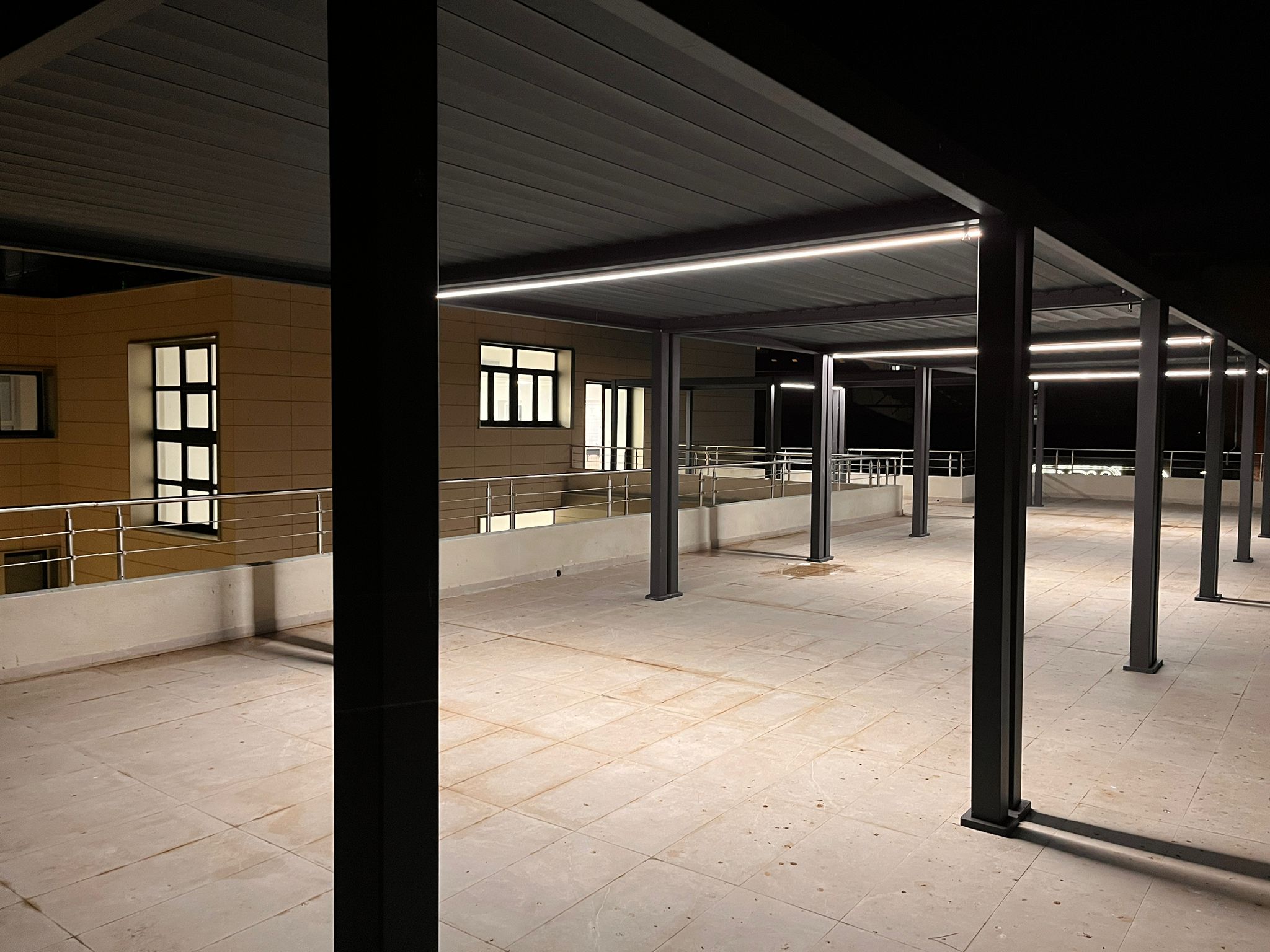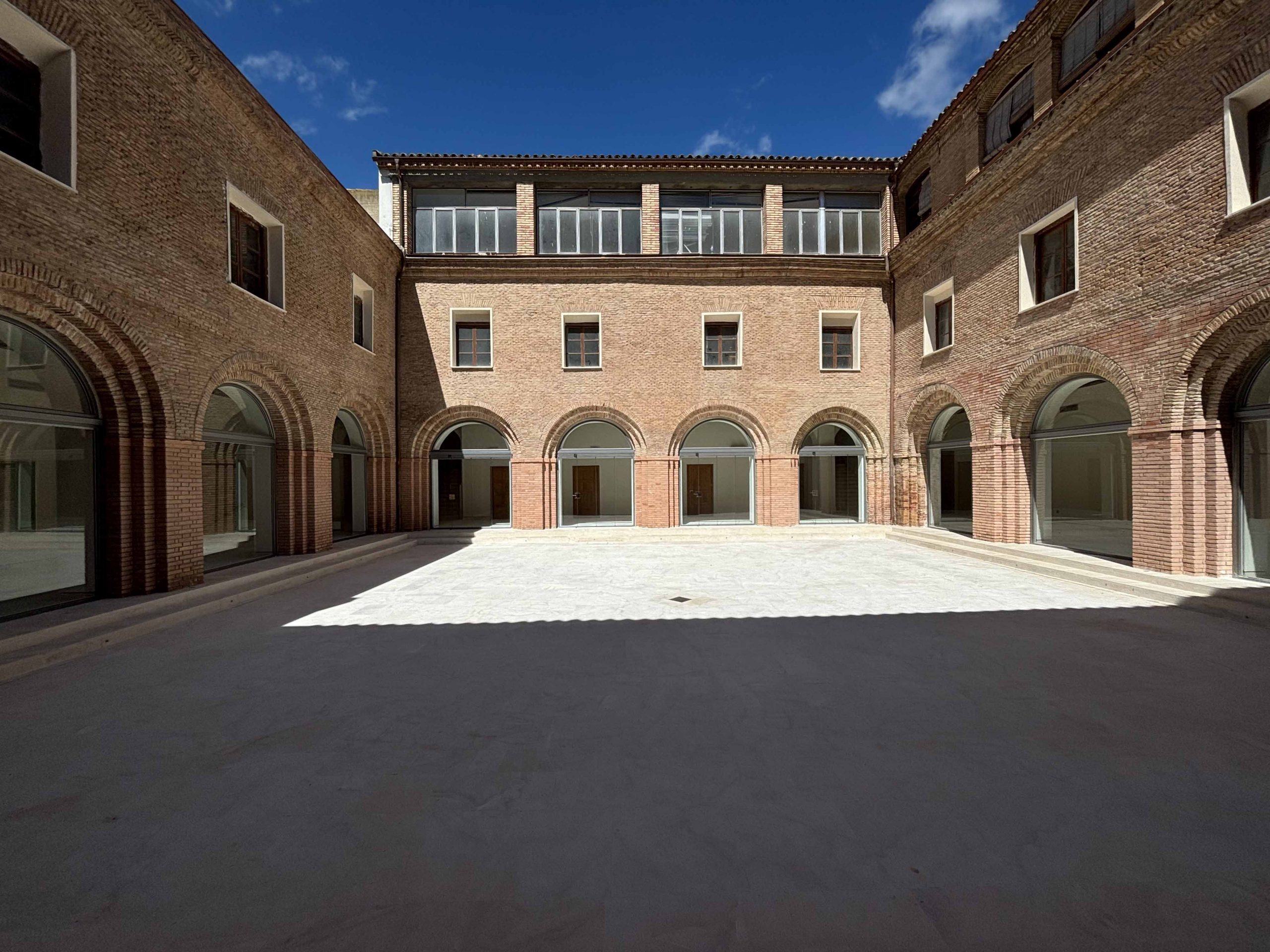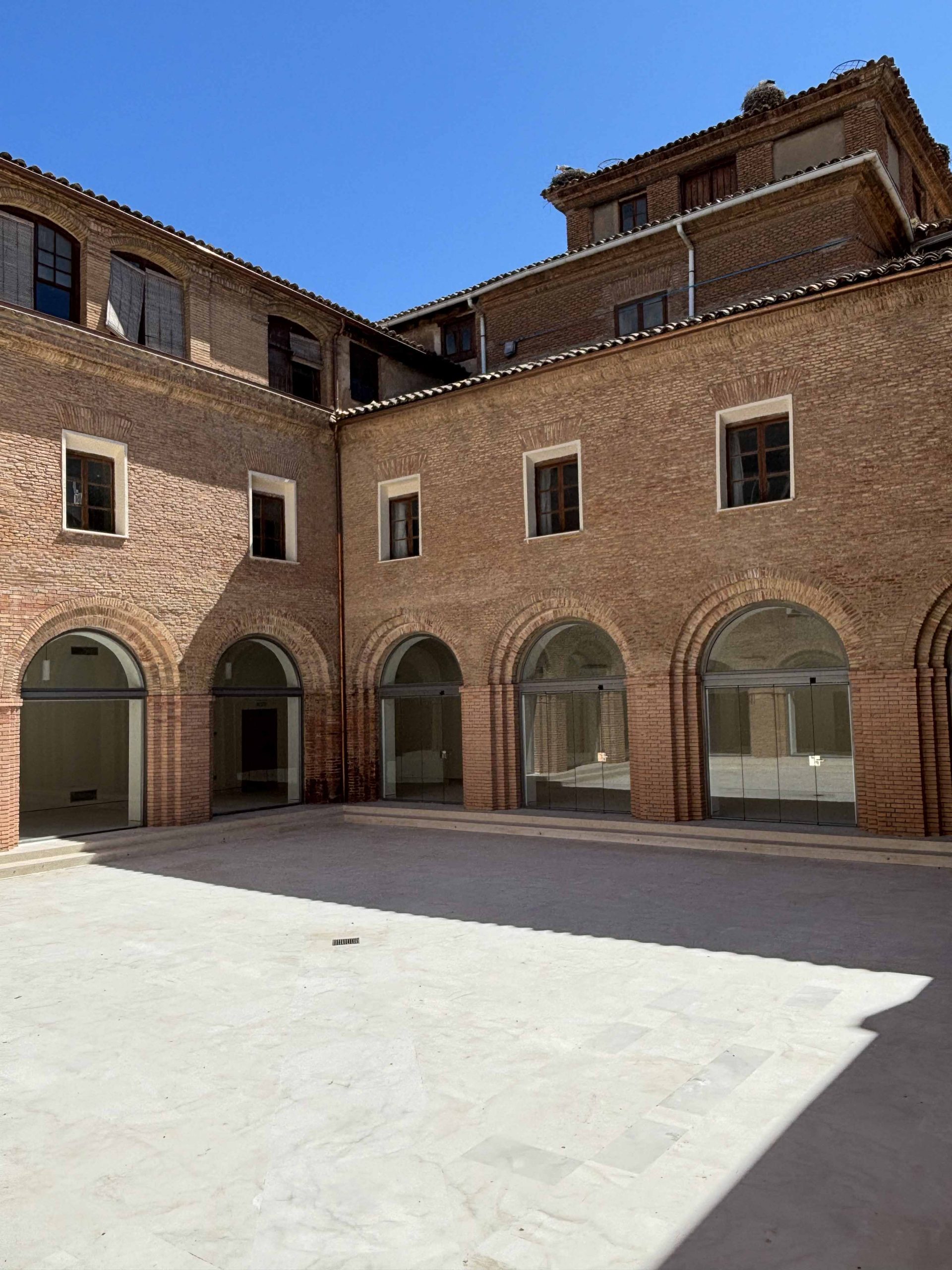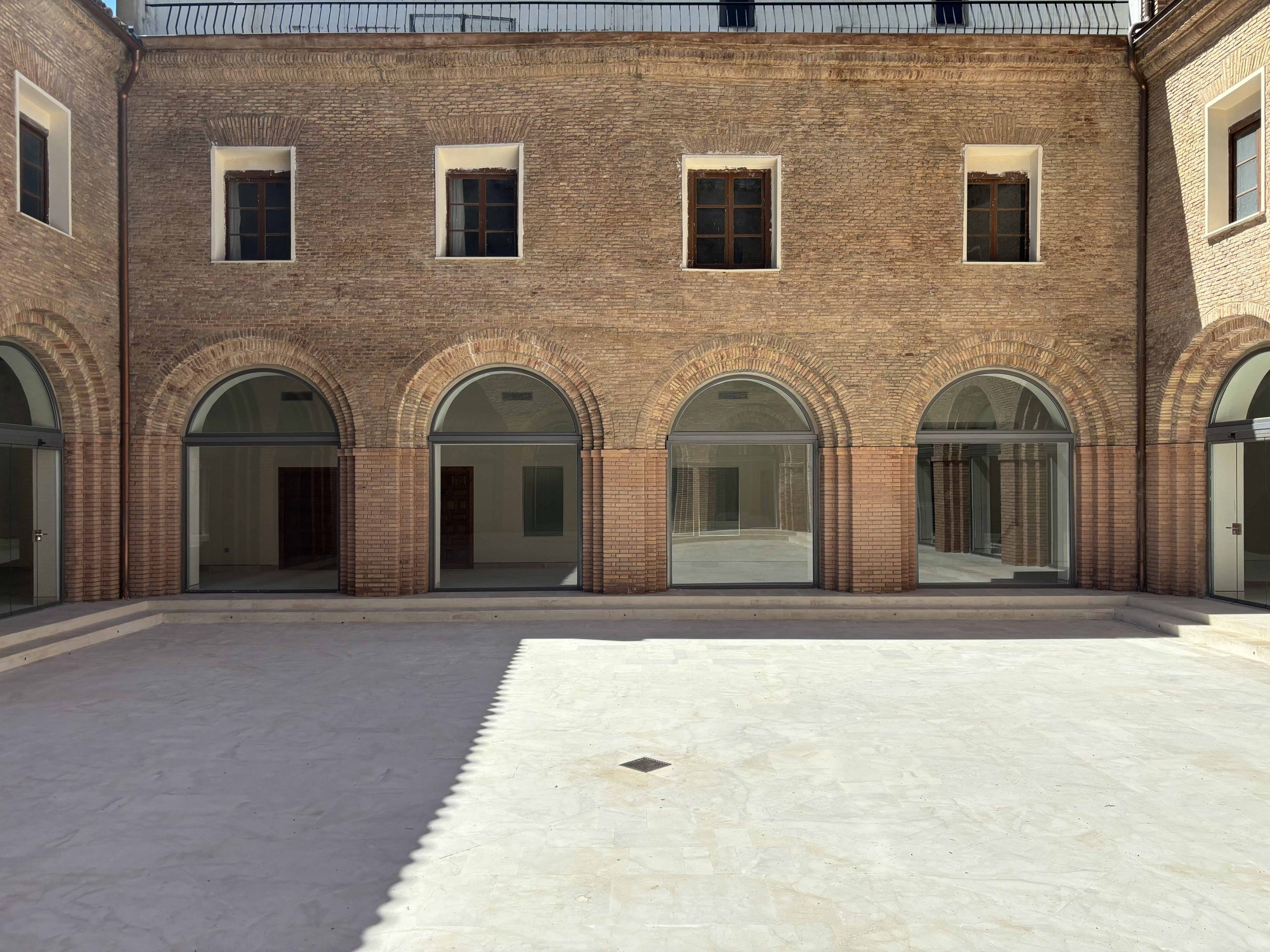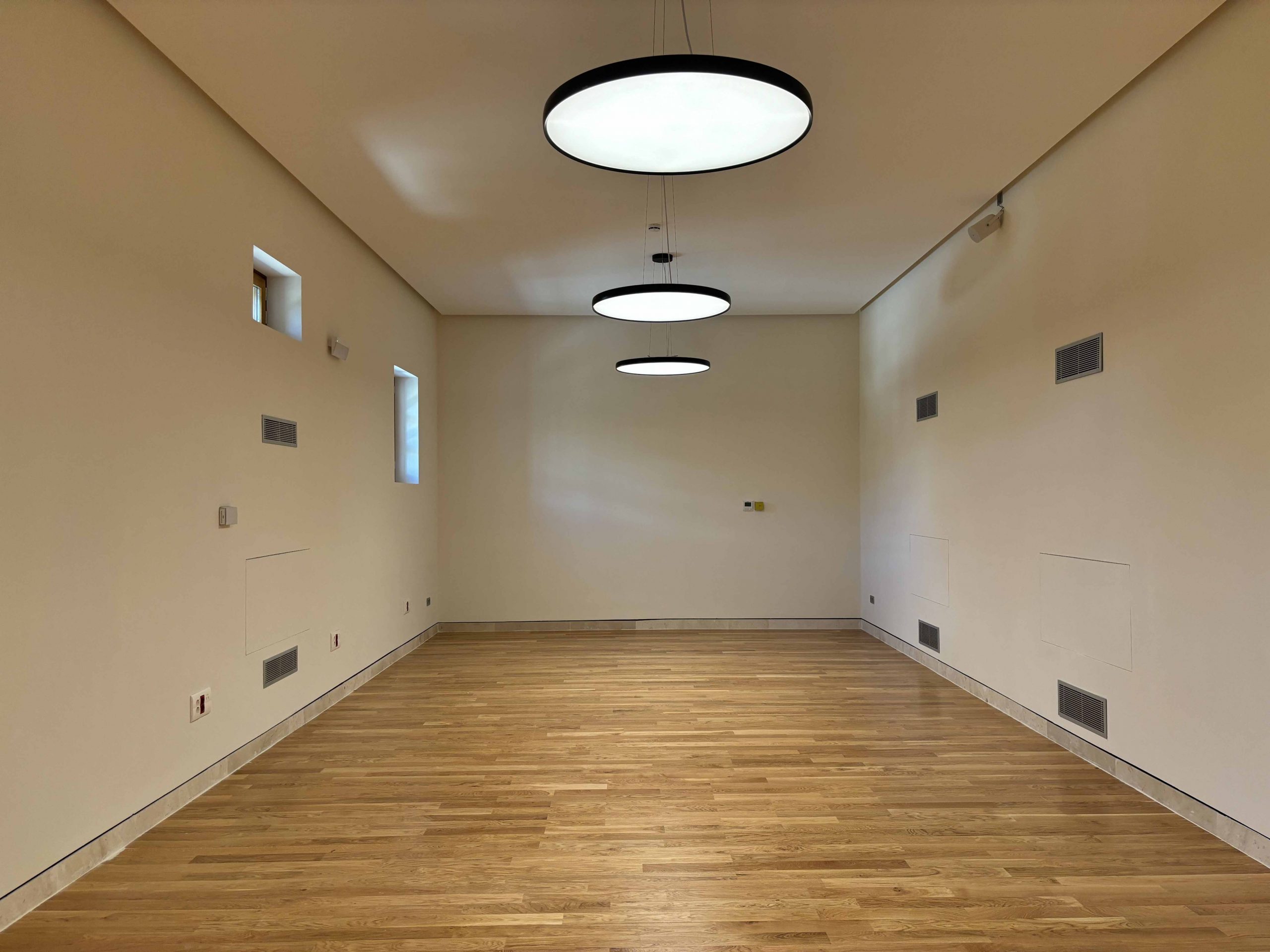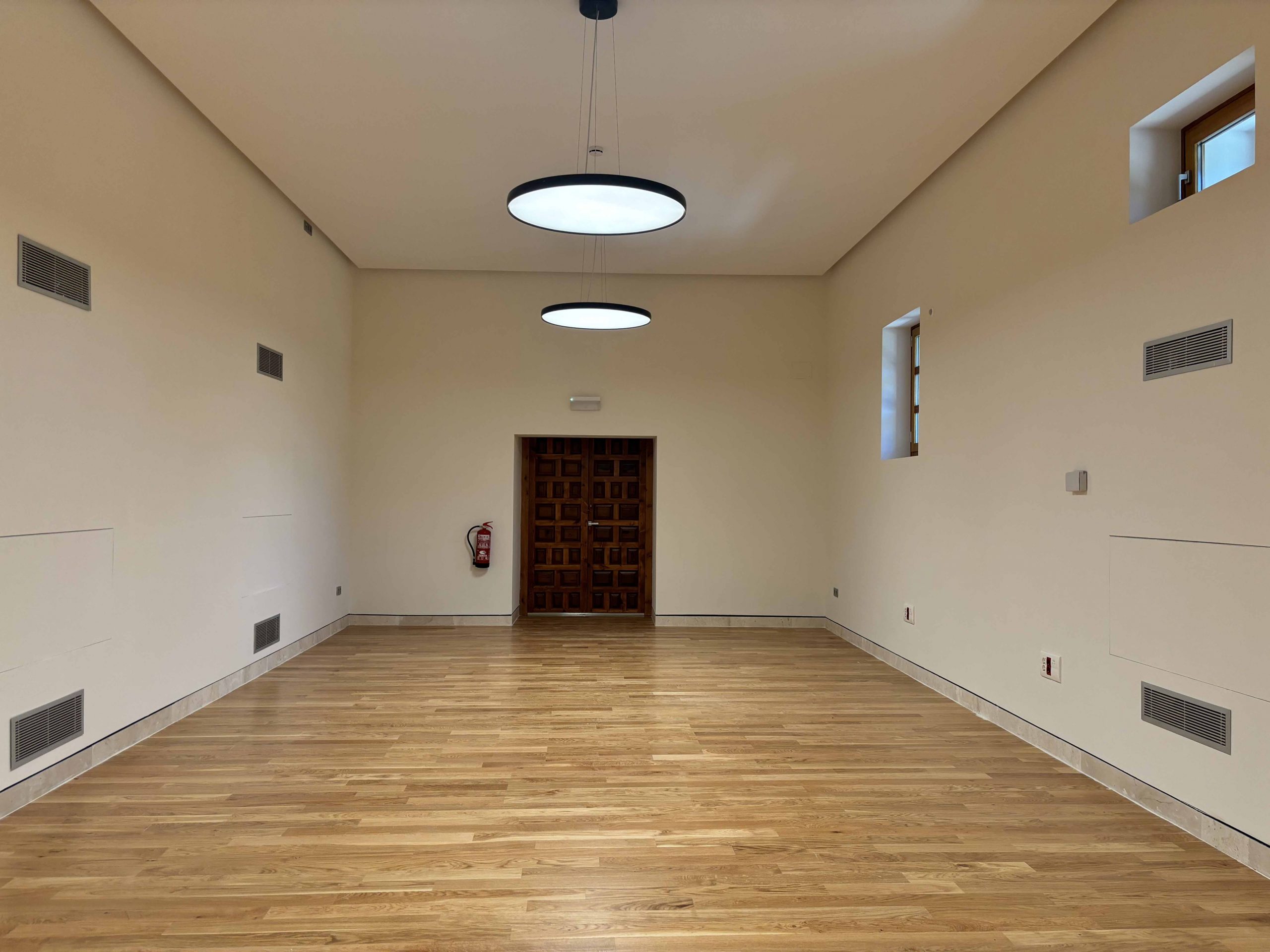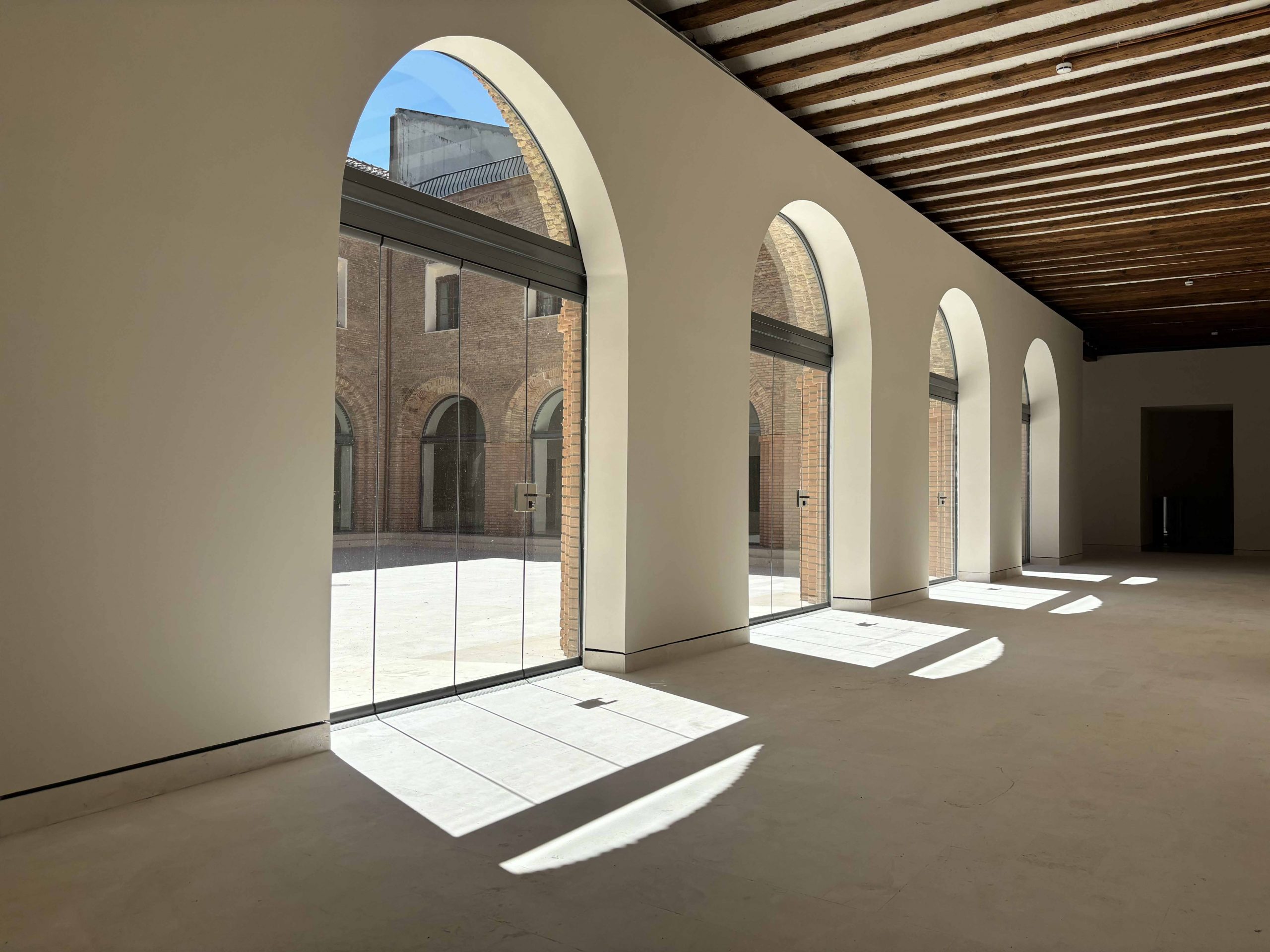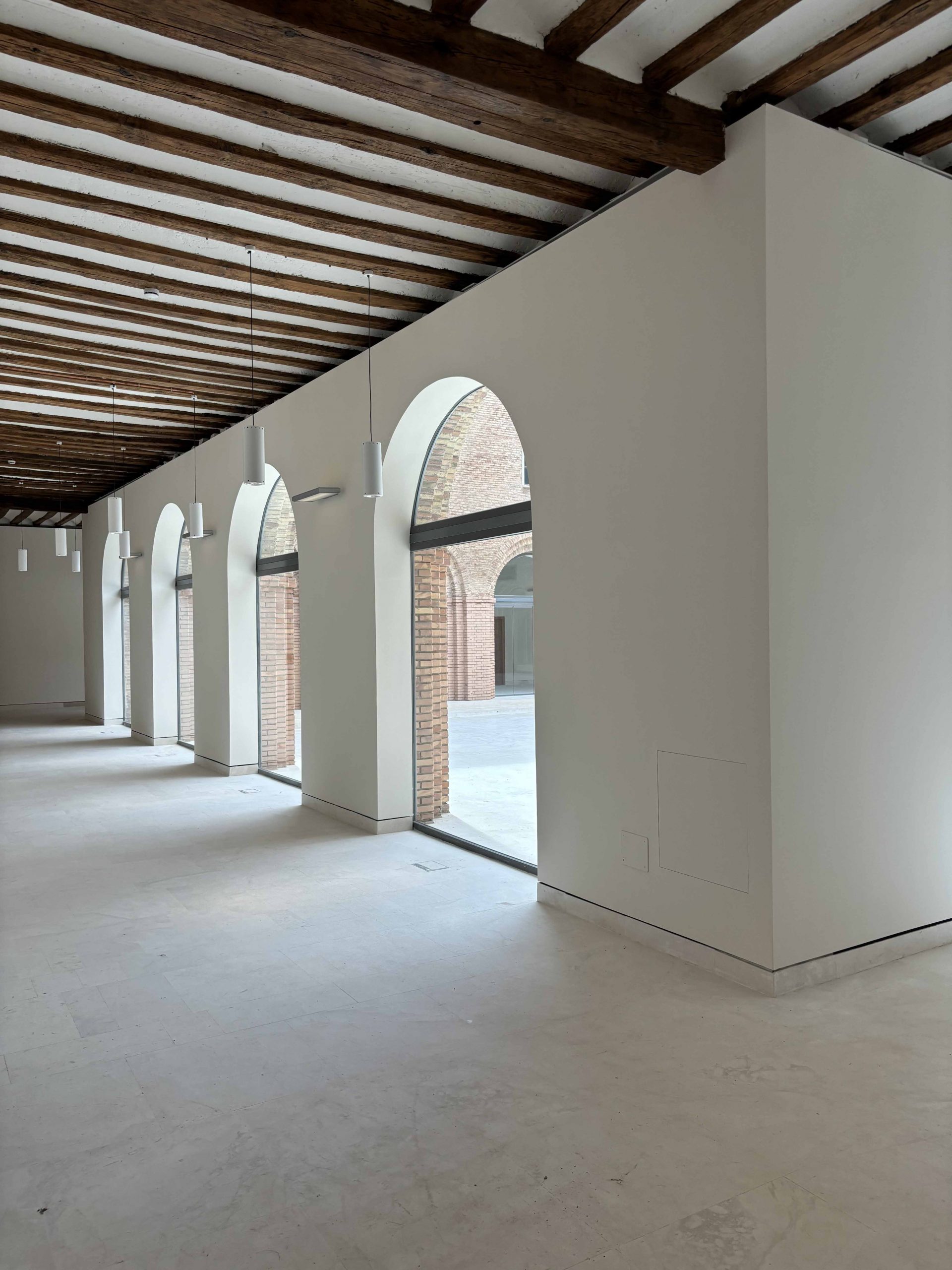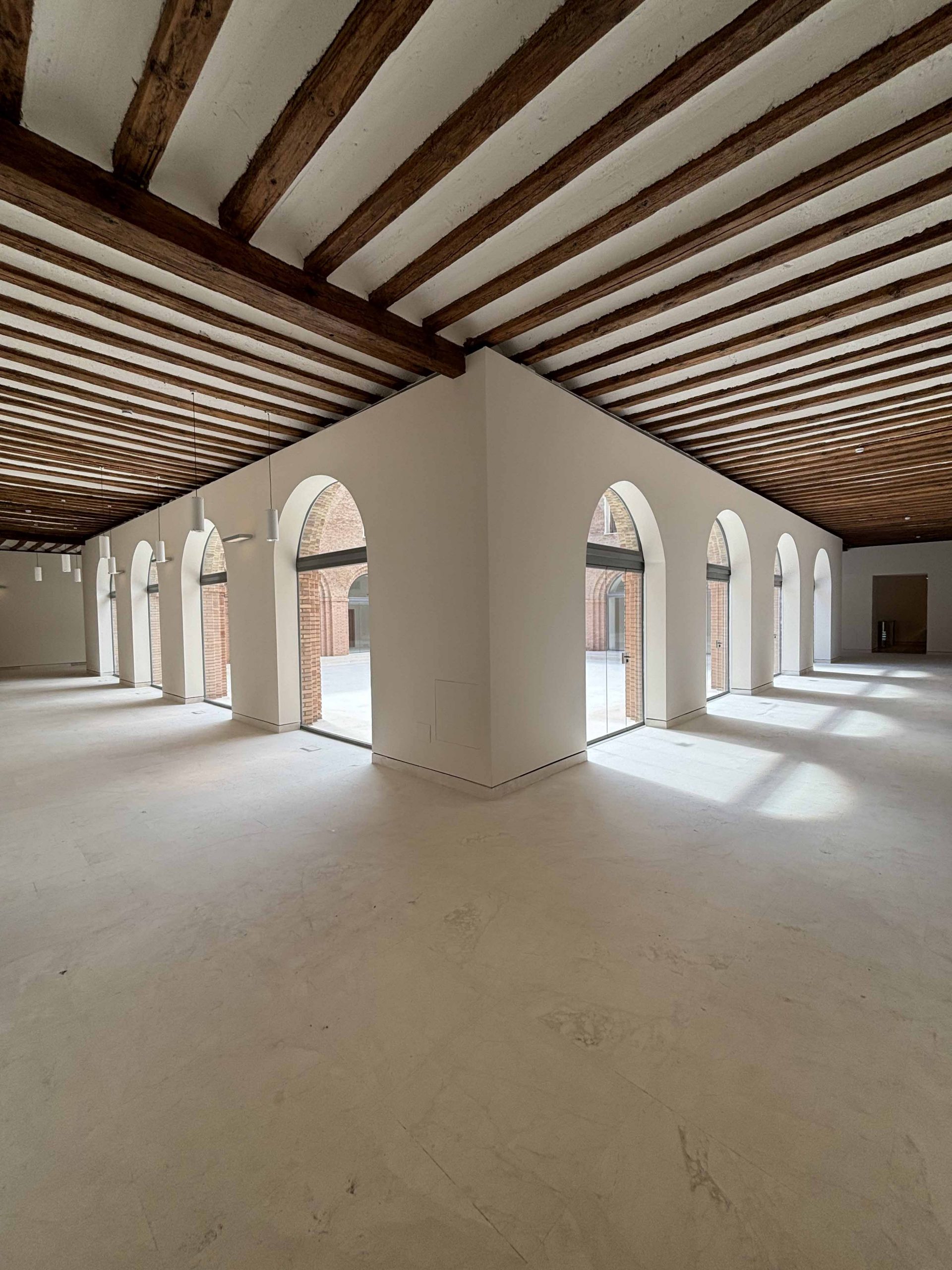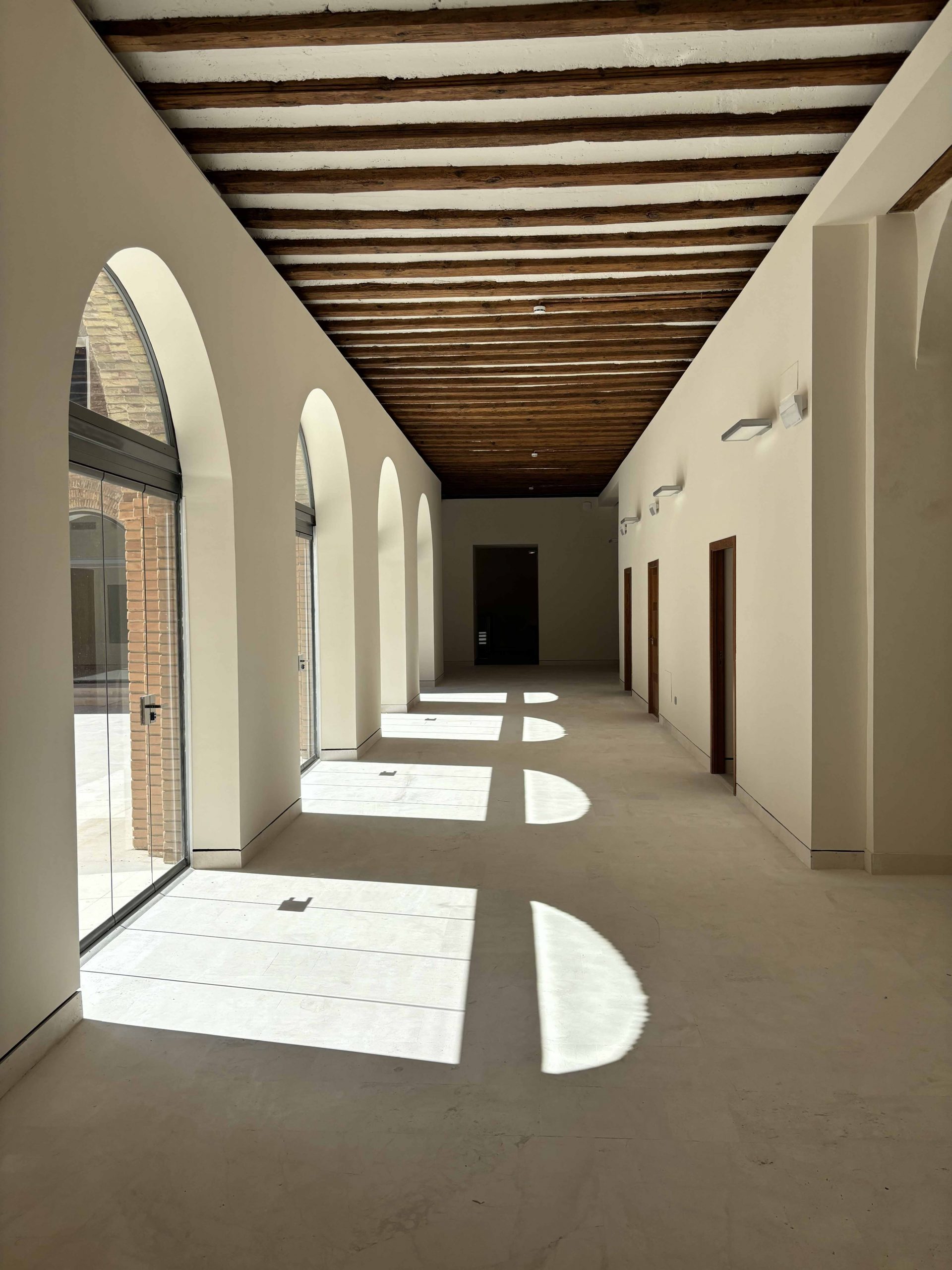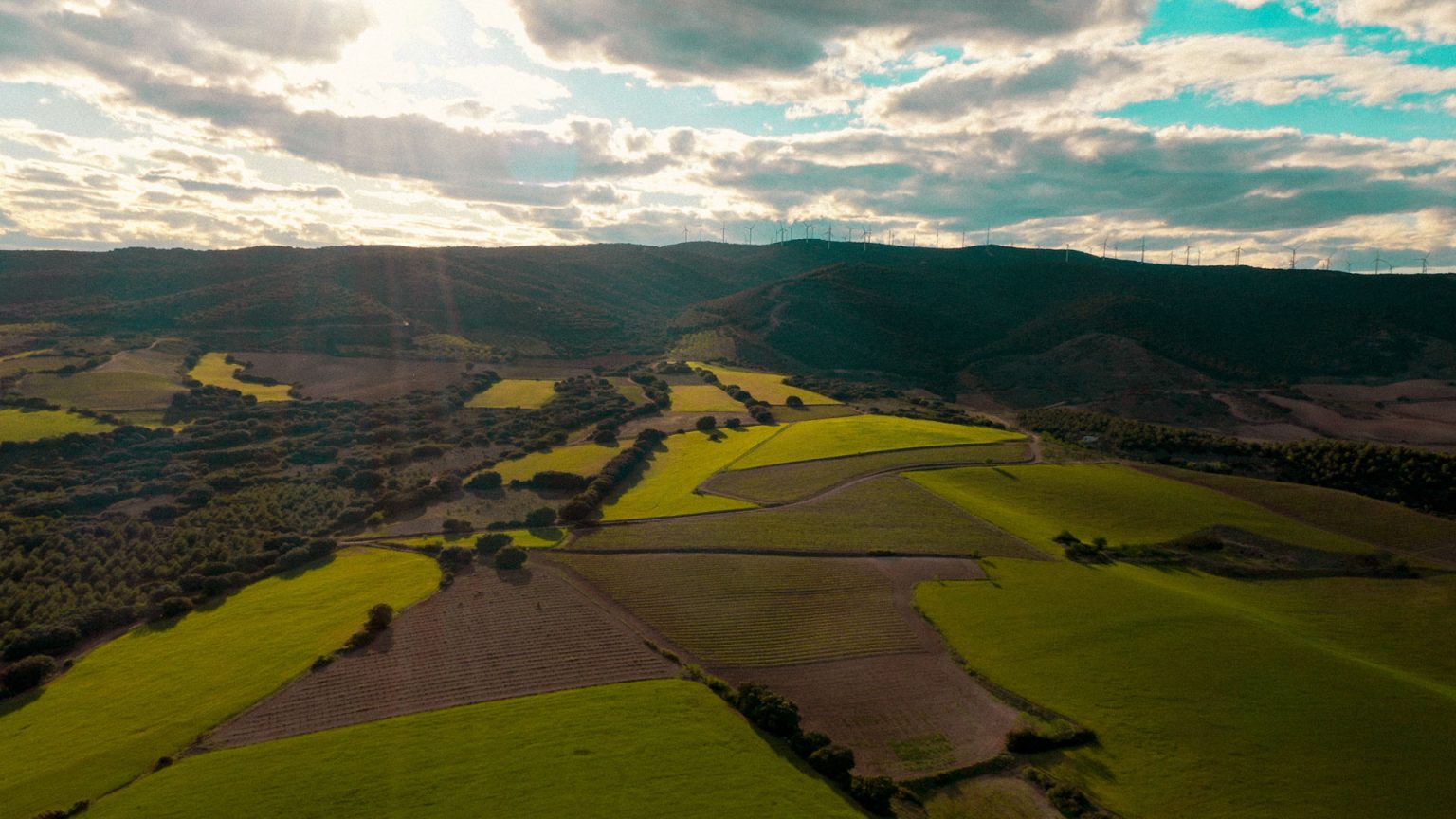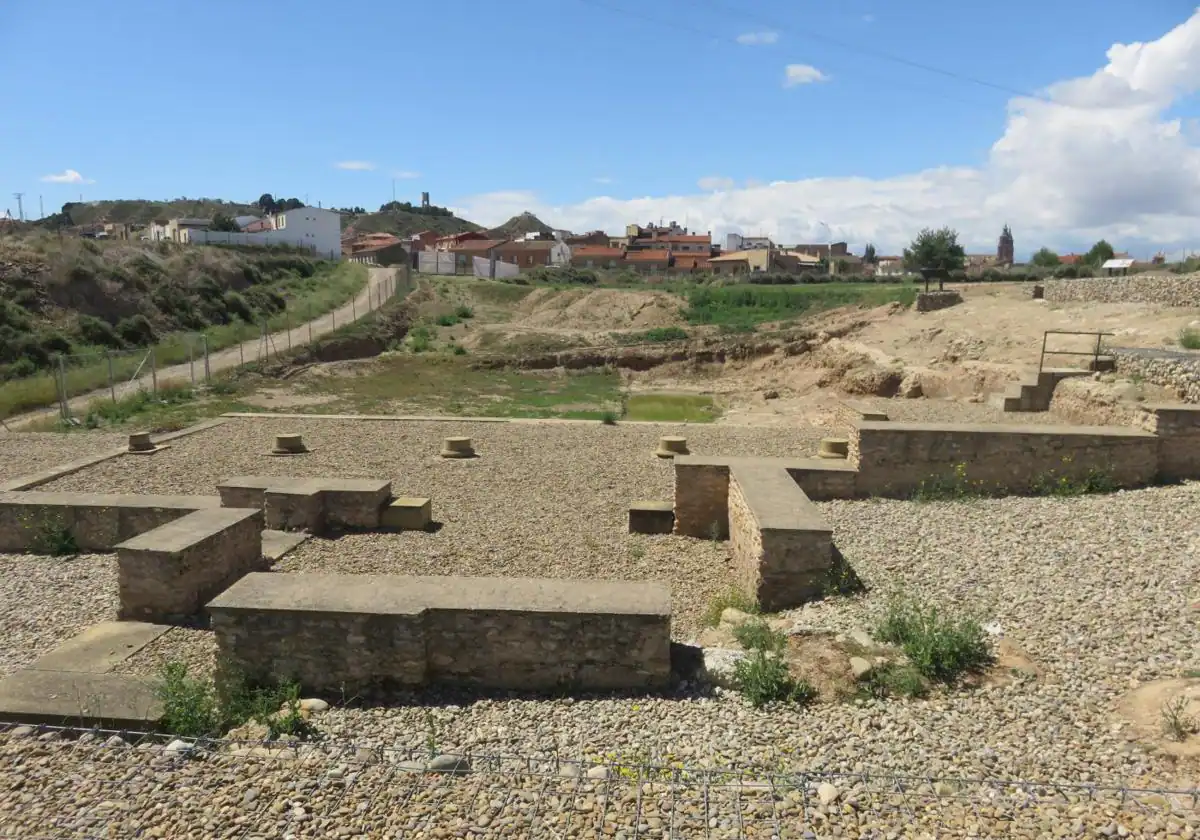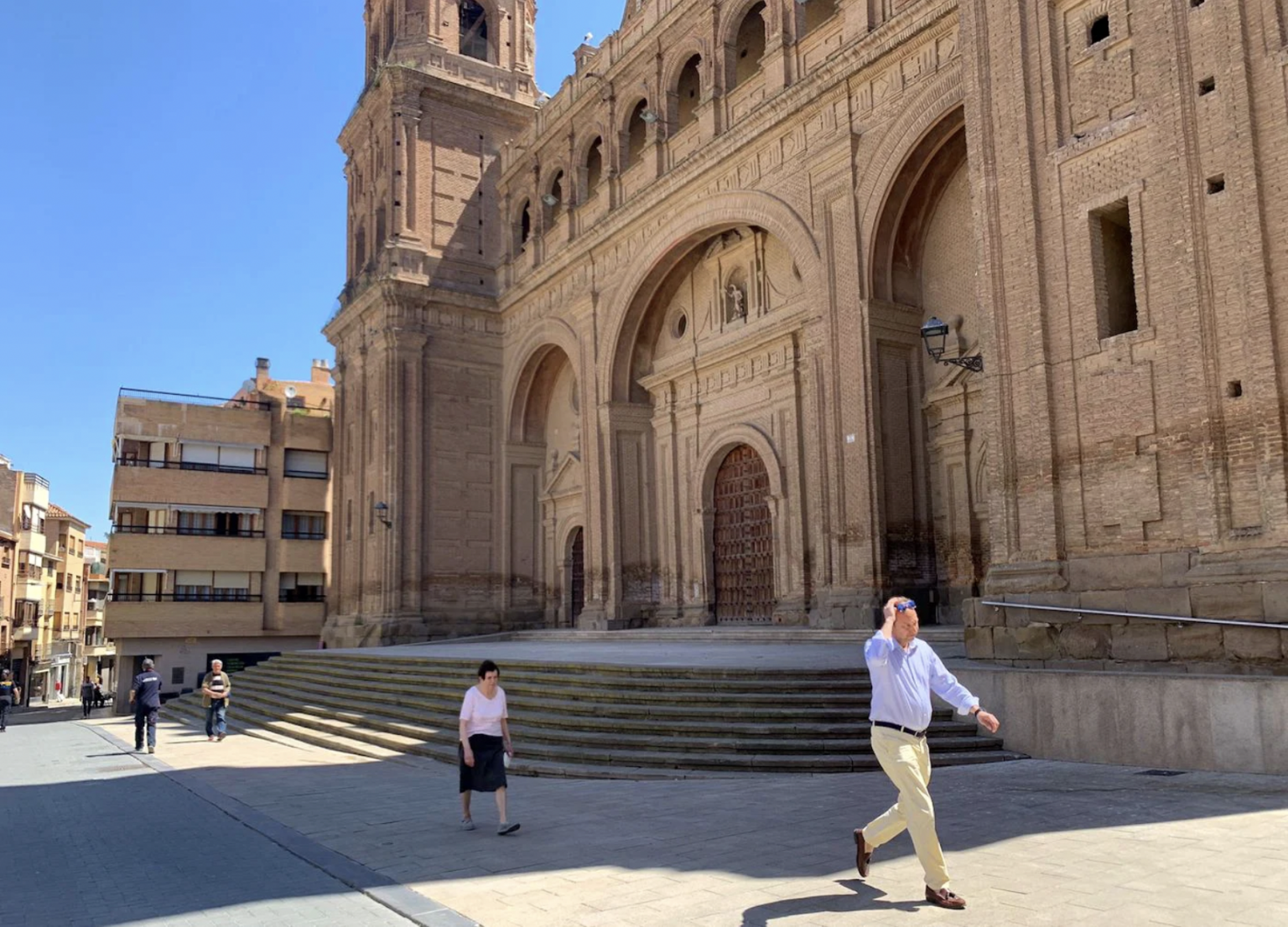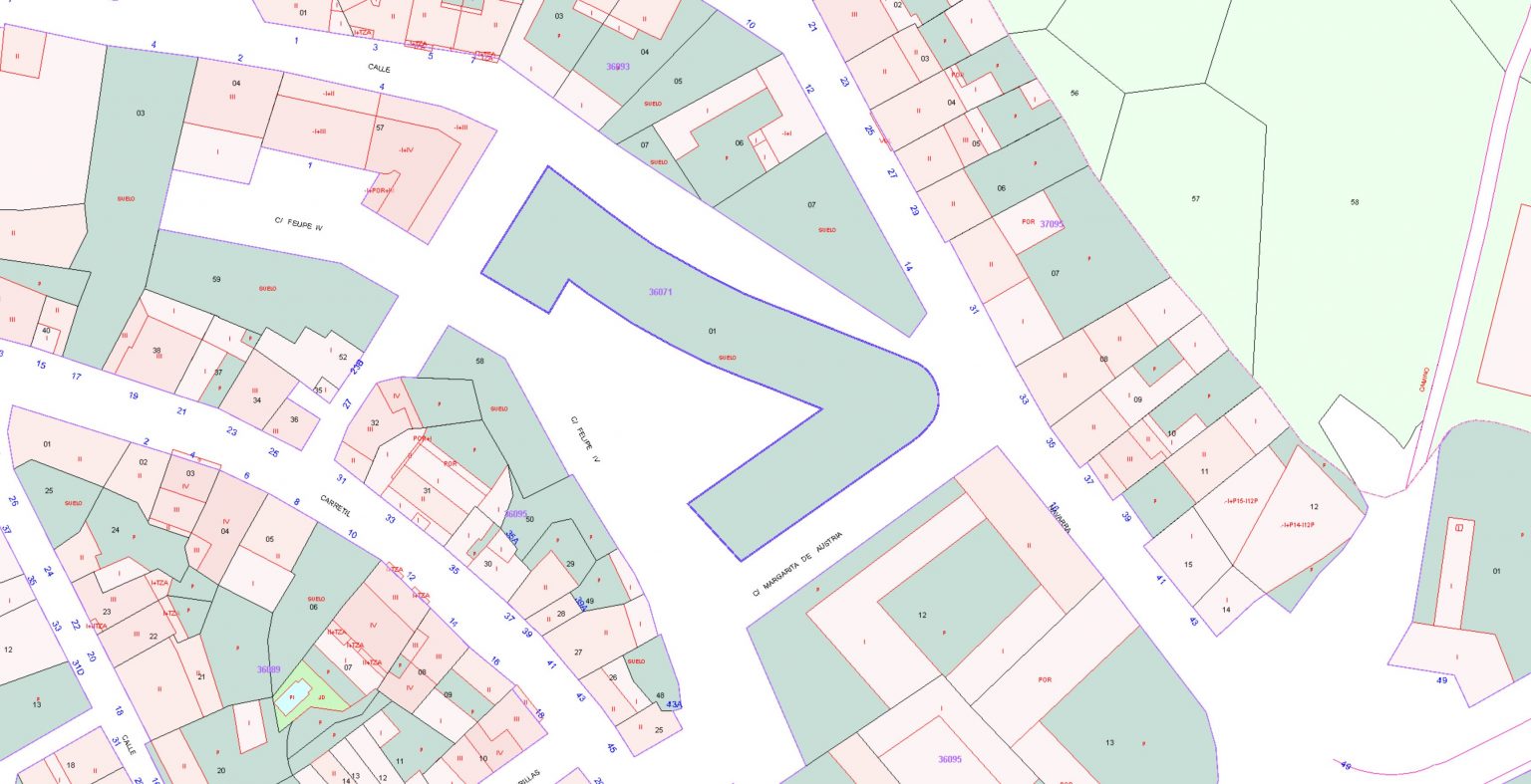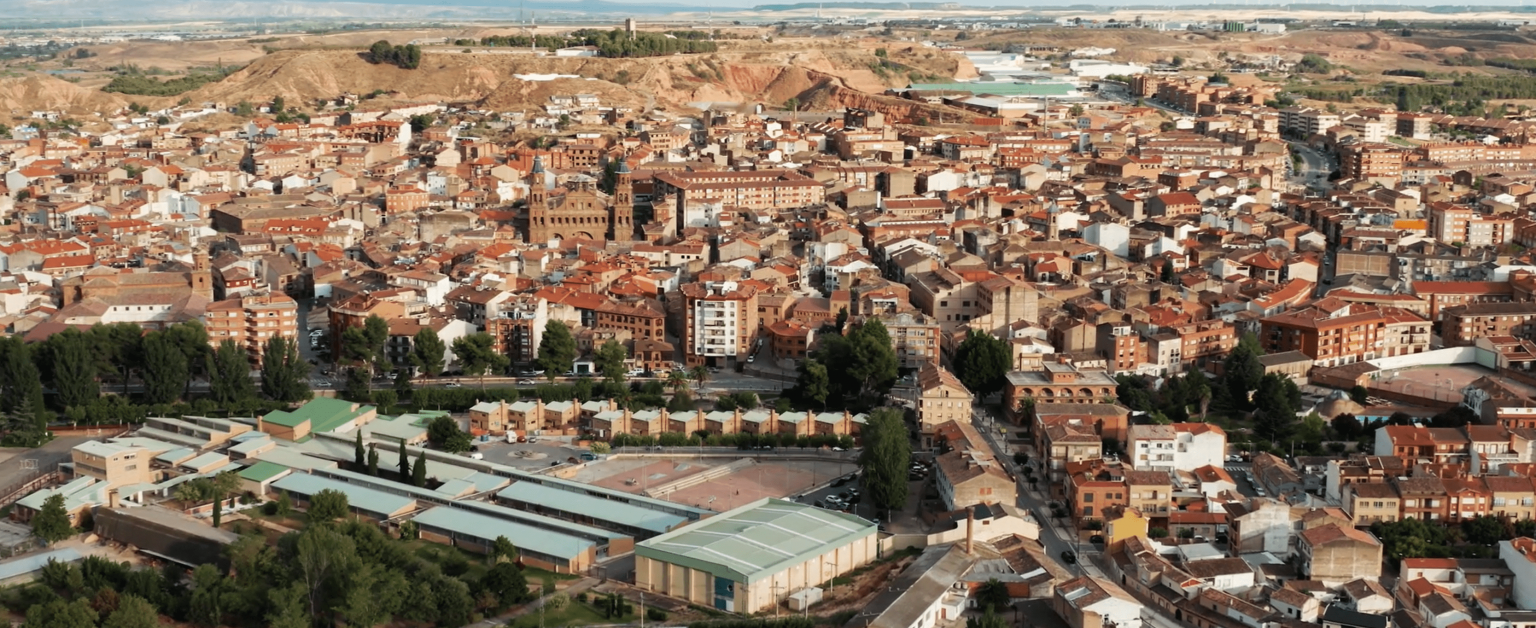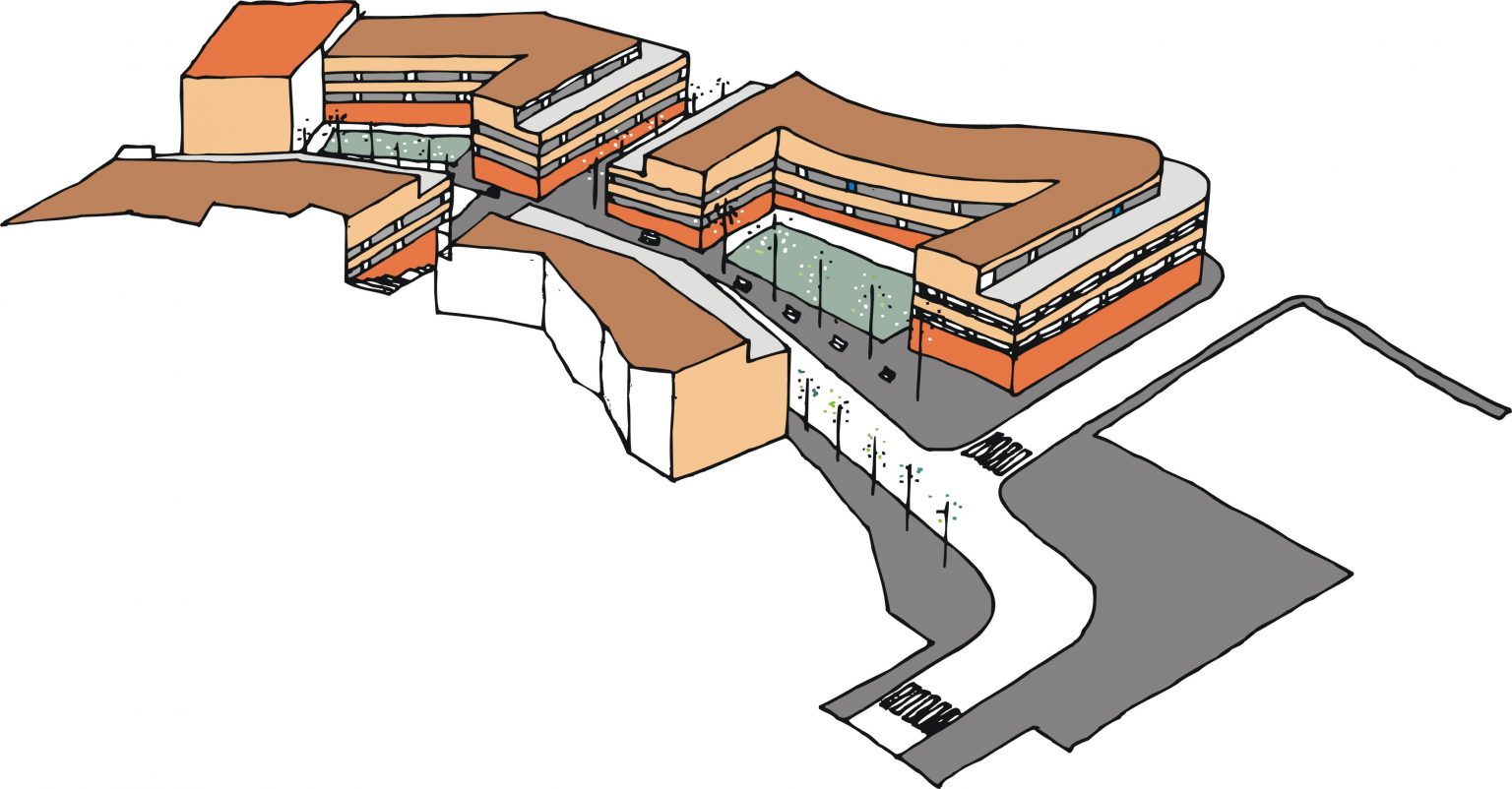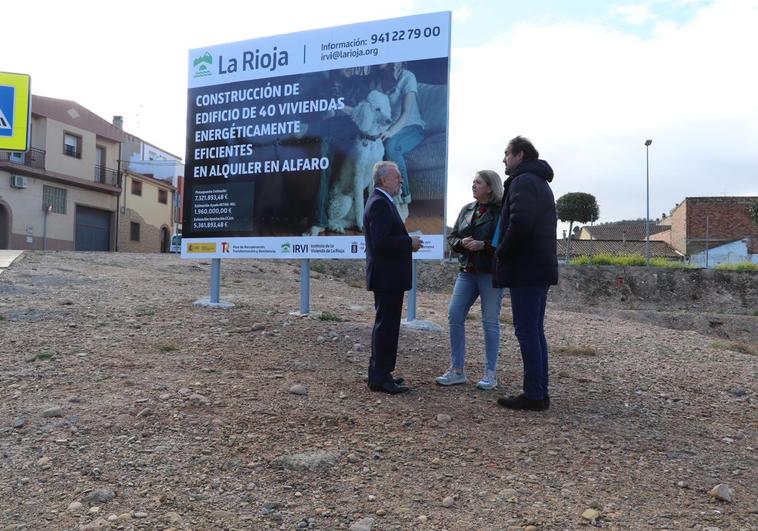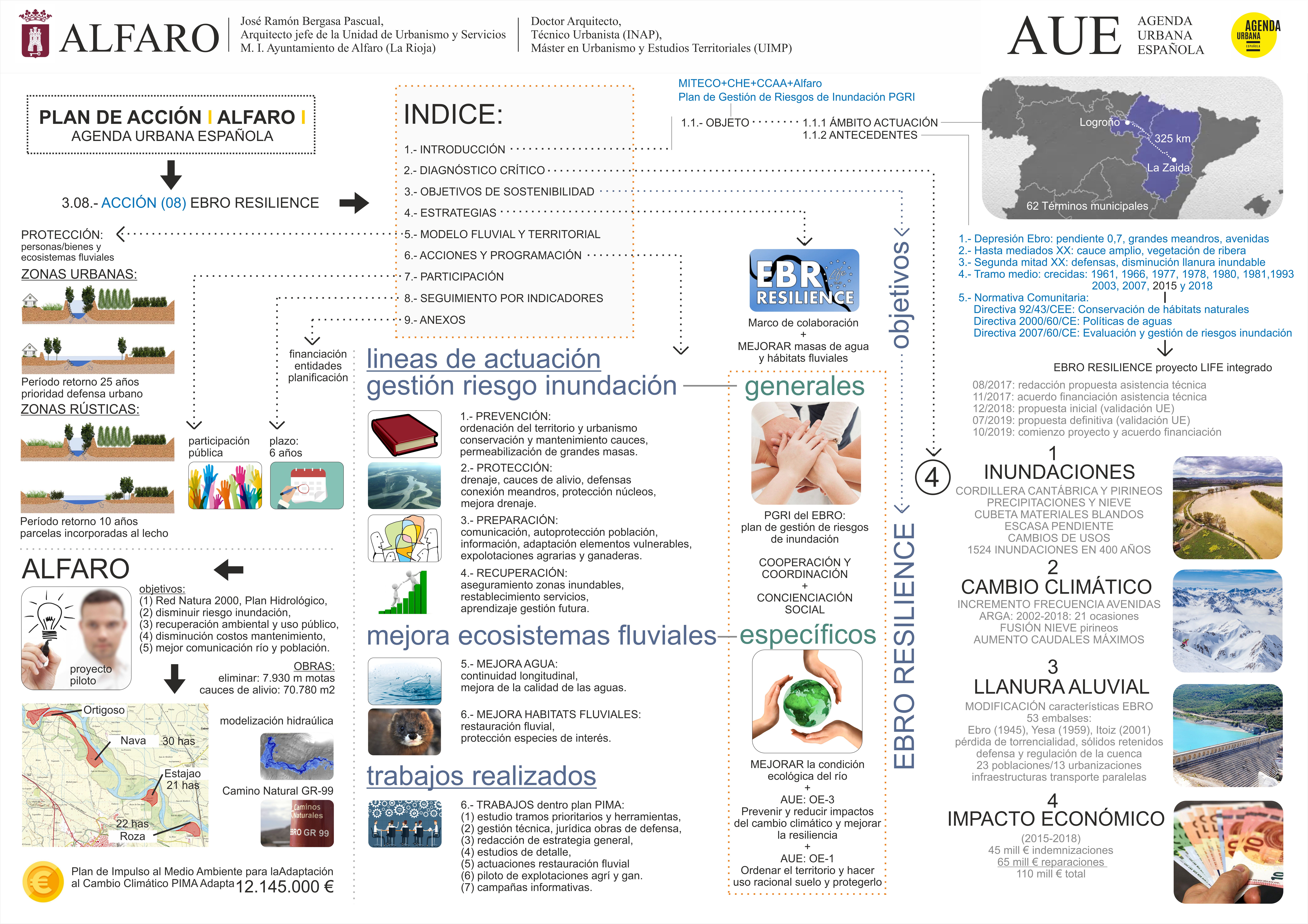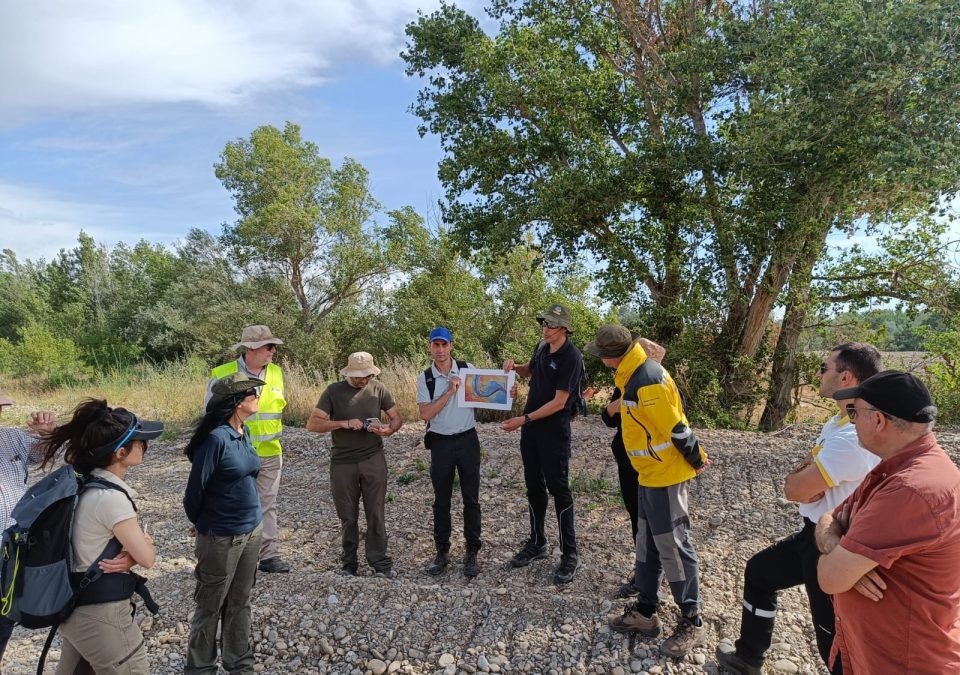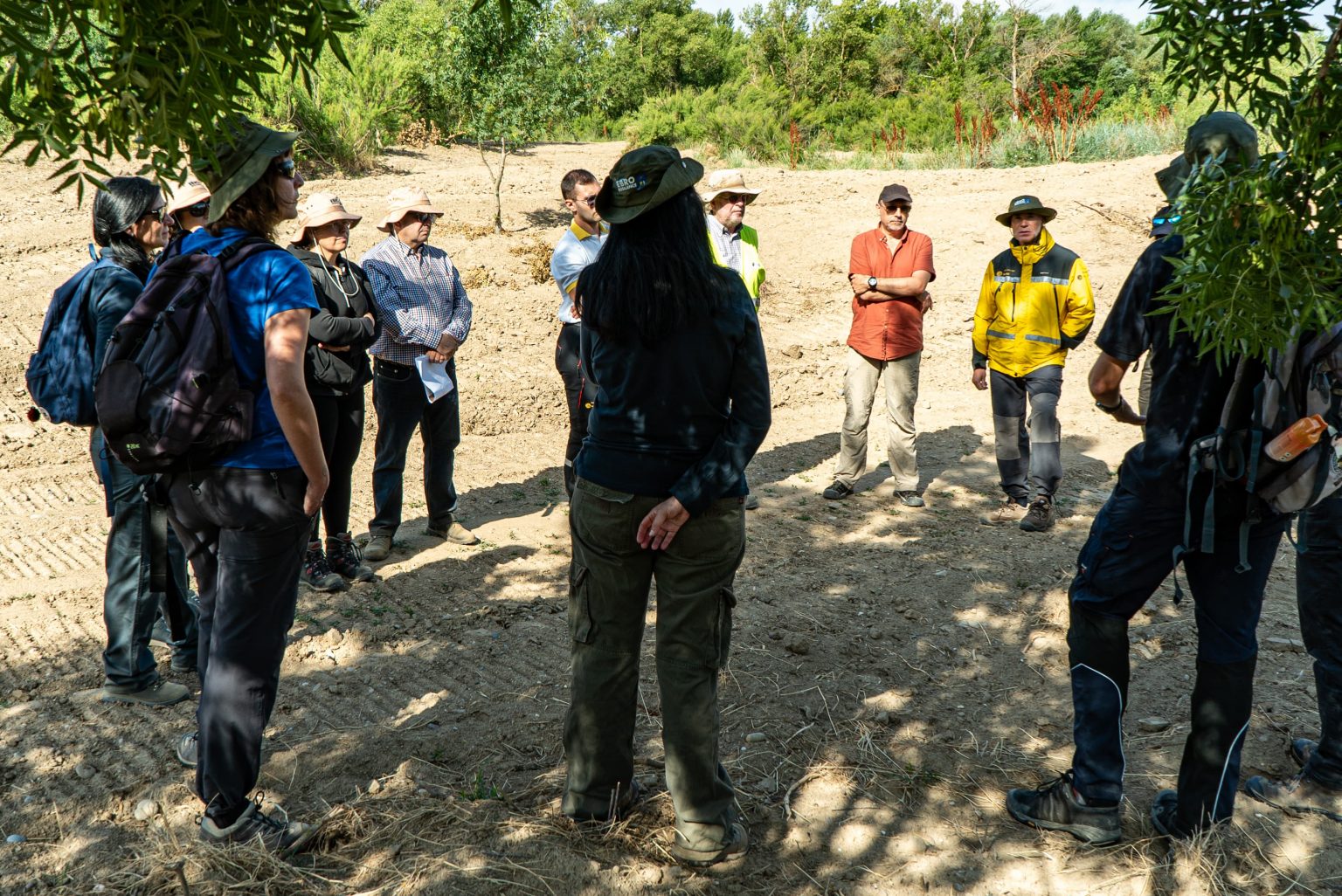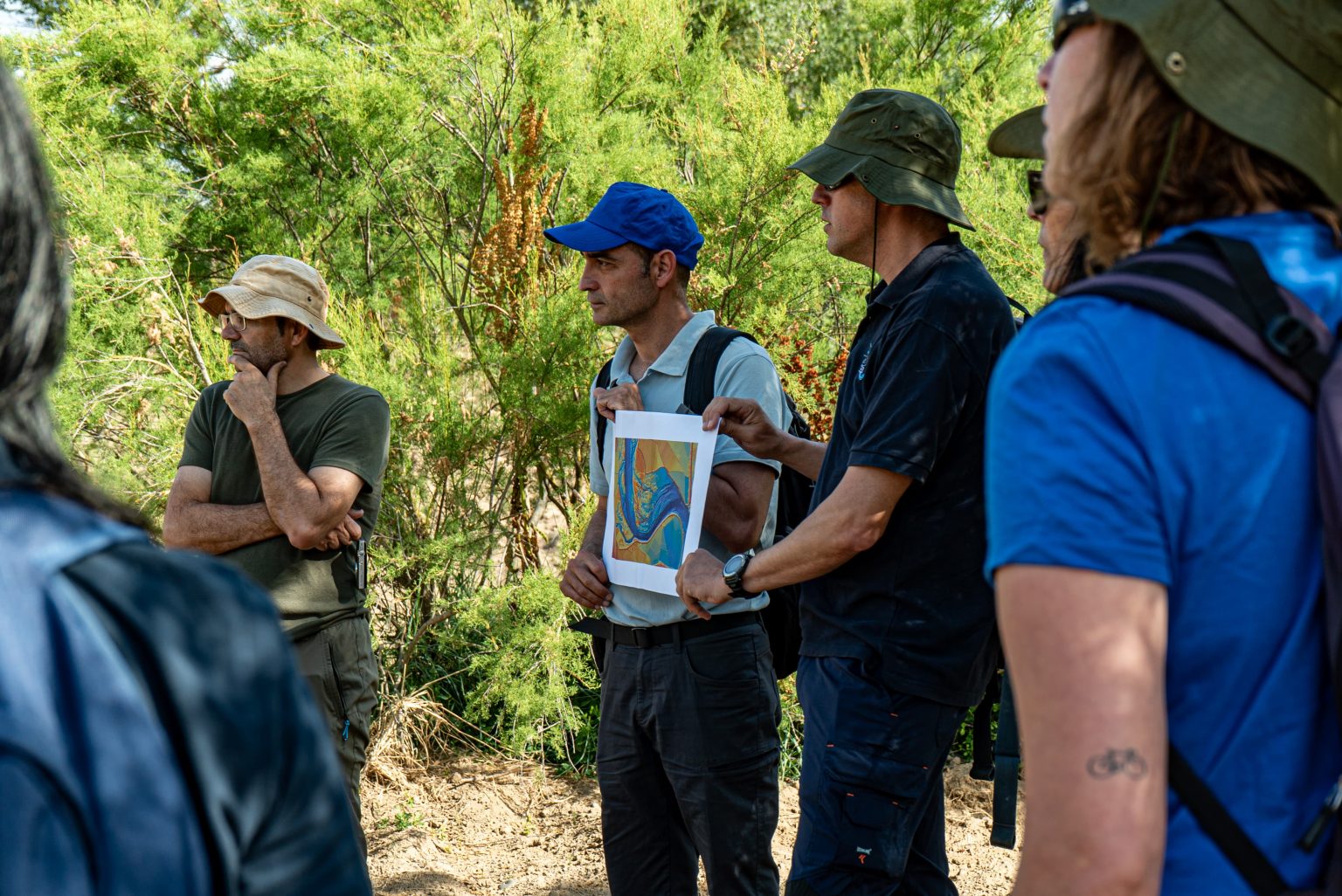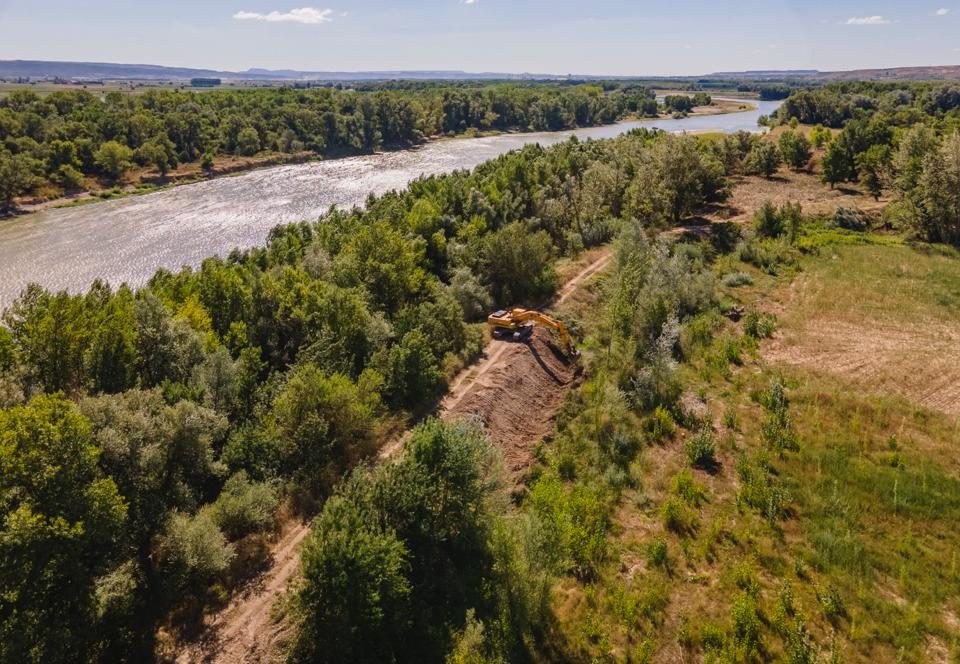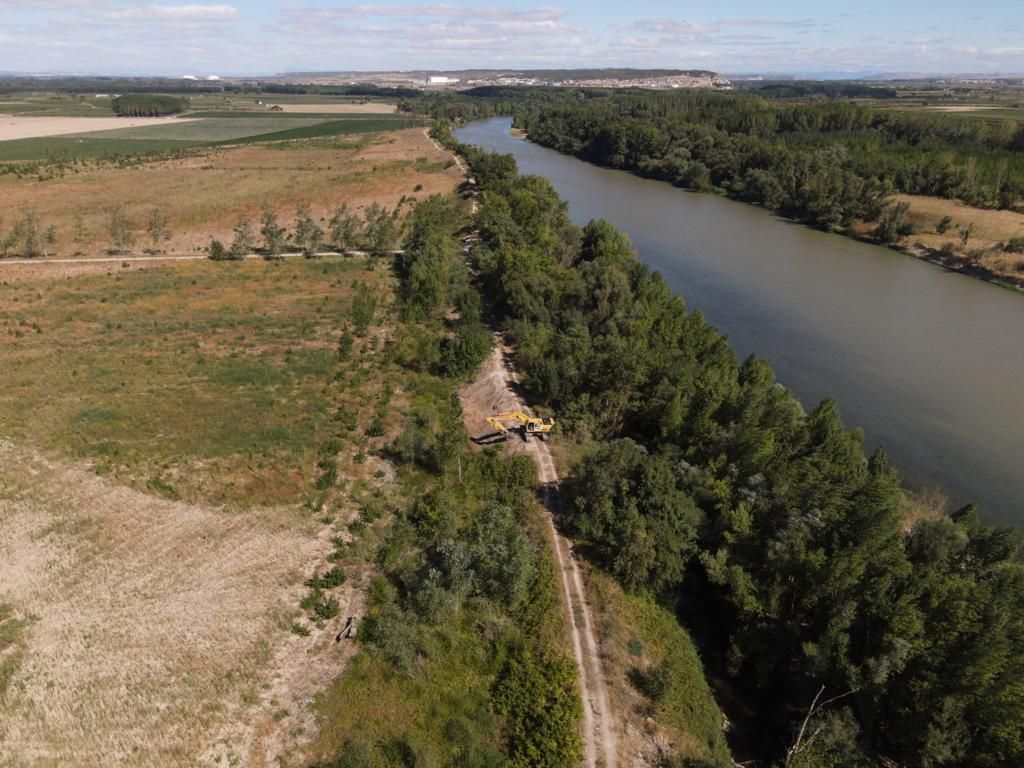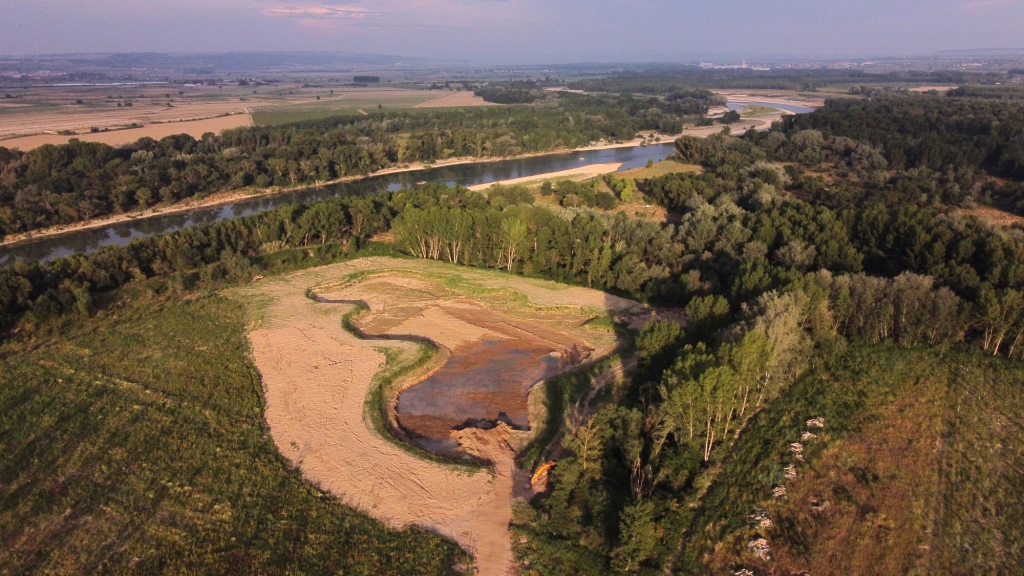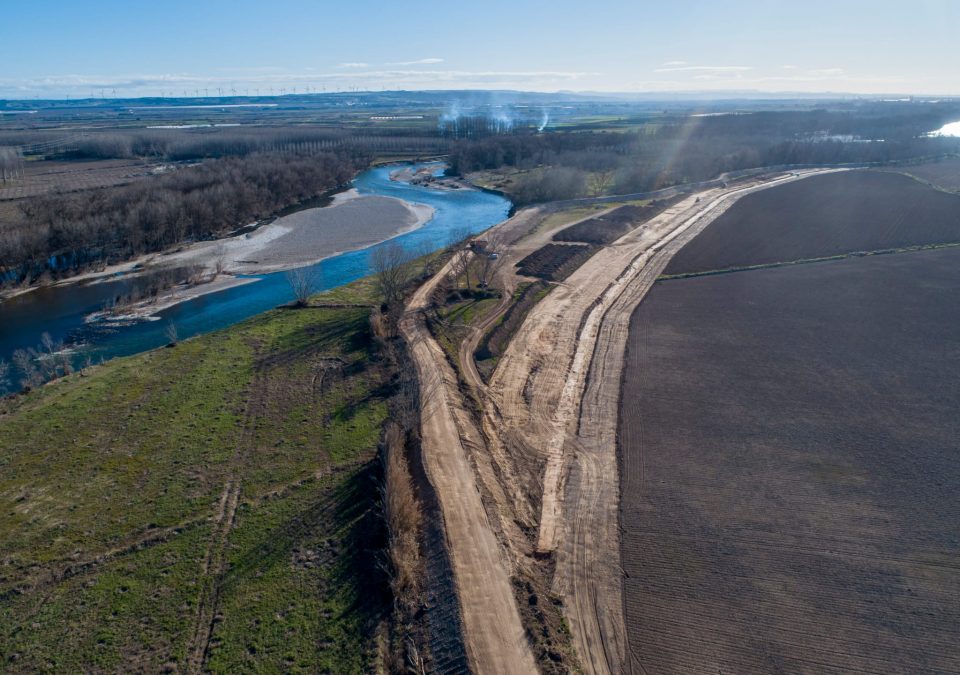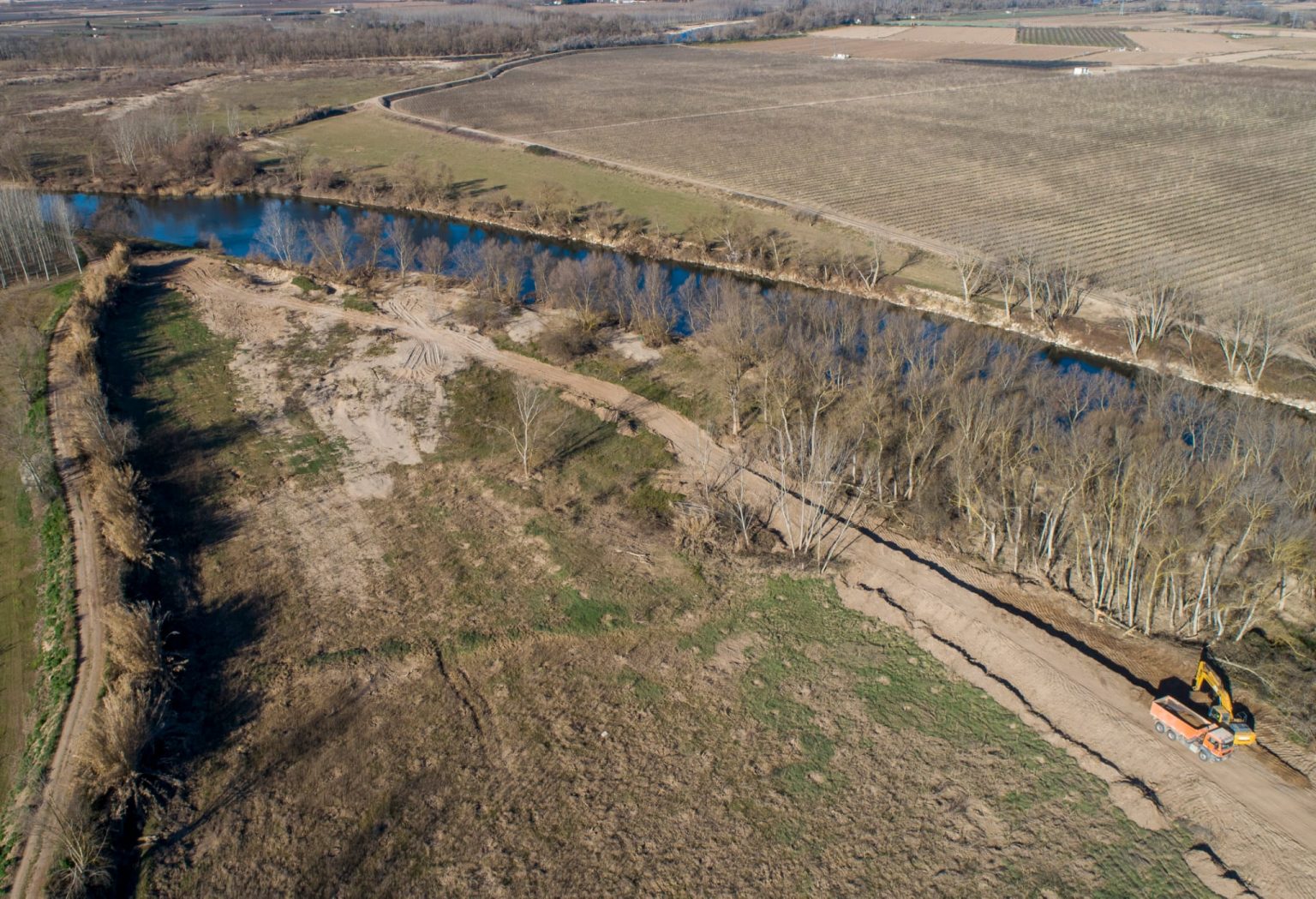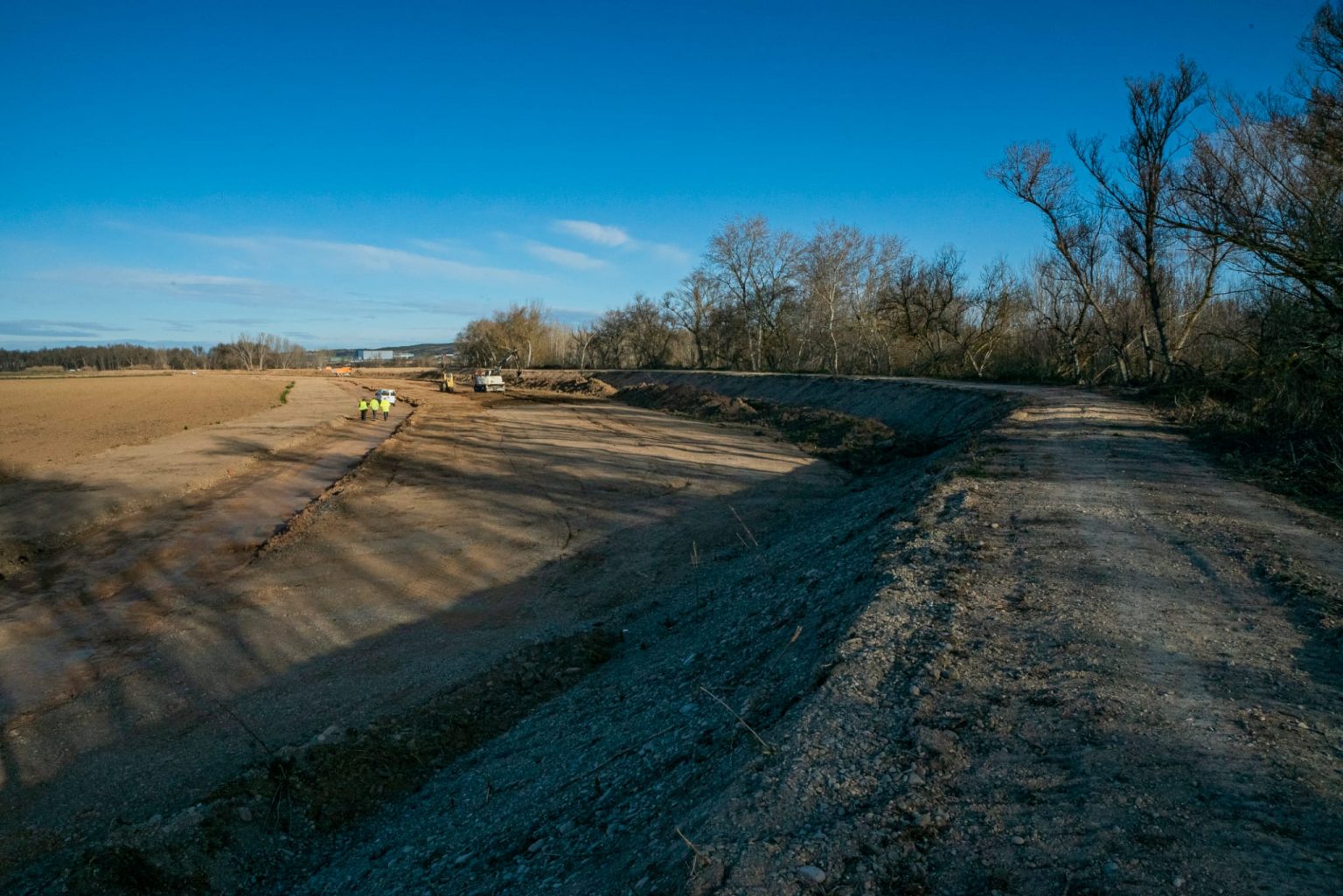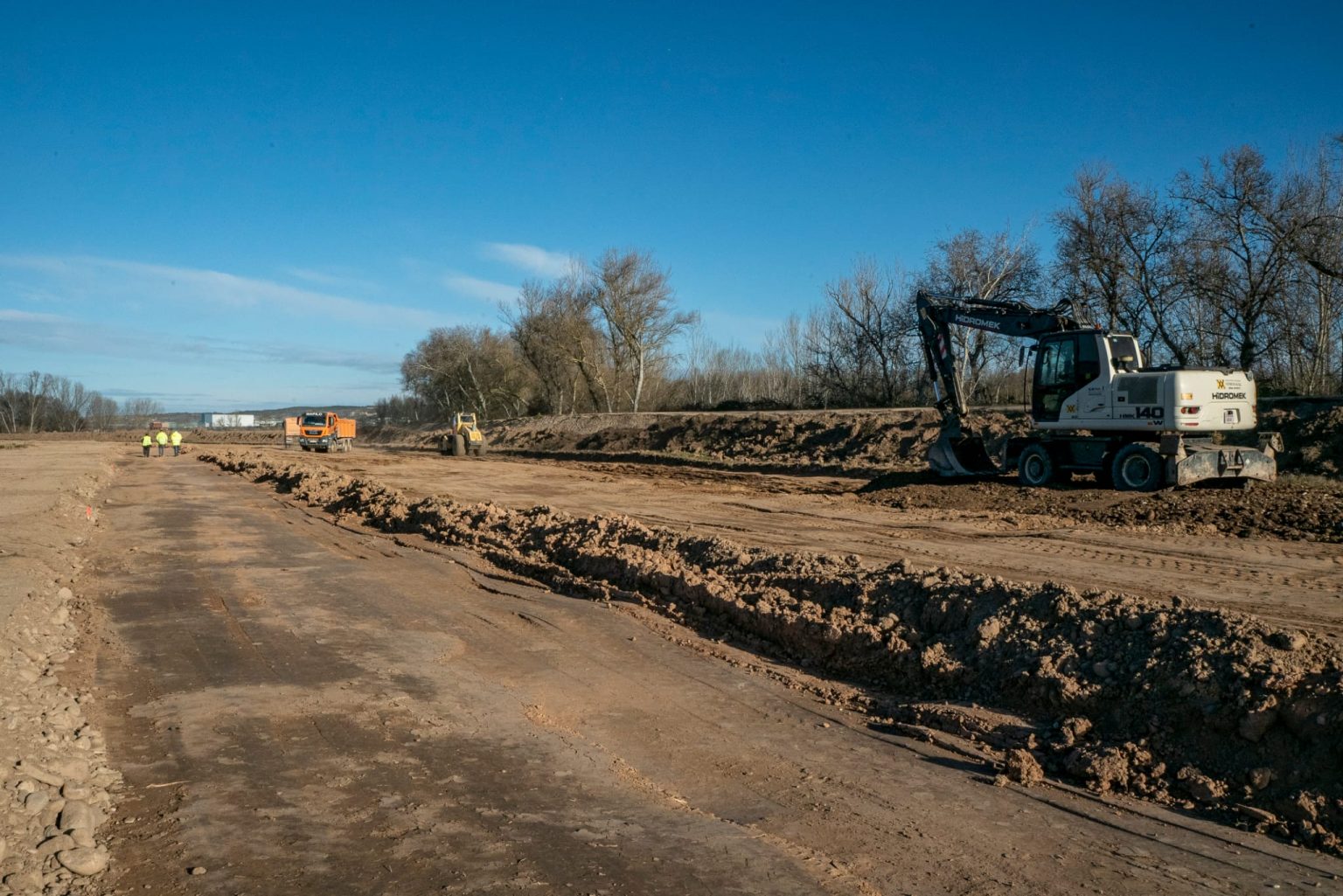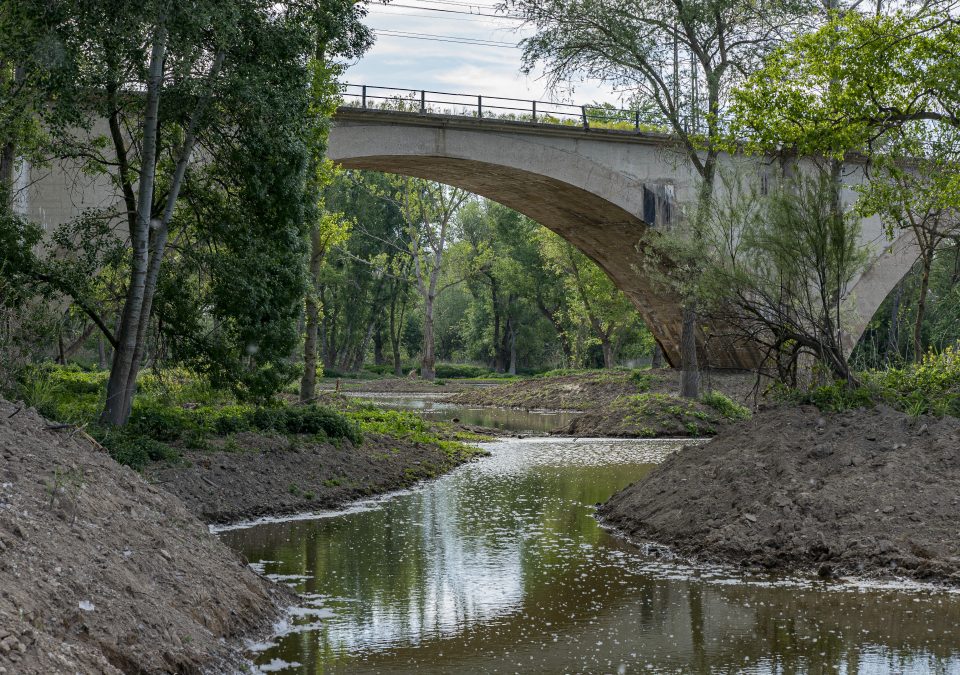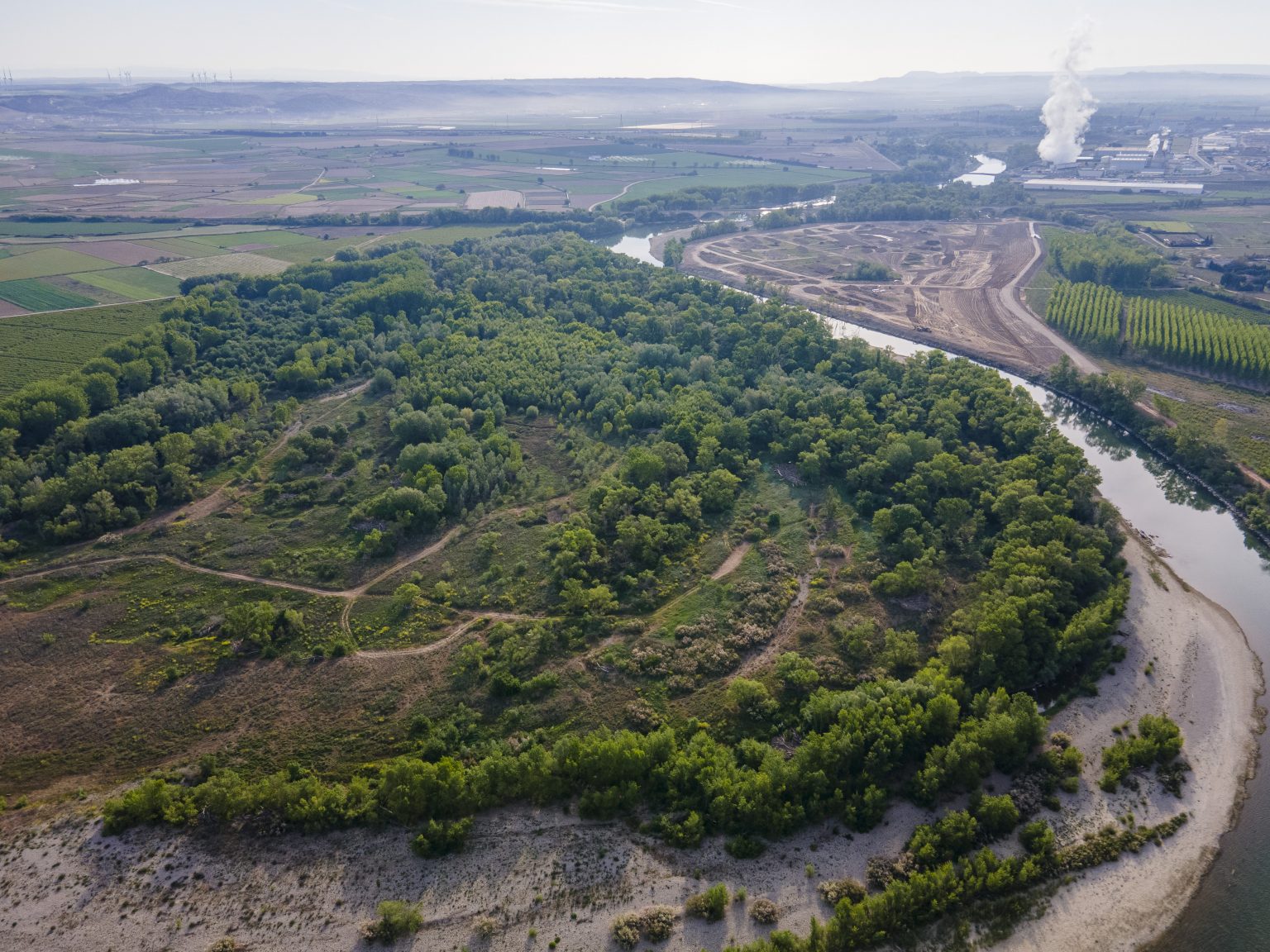ALFARO LOCAL ACTION PLAN
ALFARO LOCAL ACTION PLAN OF THE SPANISH URBAN AGENDA
This is a strategic plan for a Spanish municipality of 10,000 inhabitants, carried out in accordance with the methodology of the Spanish Urban Agenda (AUE) that applies the values of the New European Bauhaus. It is based on sustainability, inclusion and quality, and has included a complete participation process. It has been a pilot project and has won the national award for sustainability, serving as an example for Spanish municipalities with less than 20,000 inhabitants.
Spain
CALLE LAS POZAS, Nº 14. 26540, ALFARO, LA RIOJA.
Prototype level
Yes
Yes
Yes
Yes
NEXT GENERATION EU
No
26011: Alfaro (ES)
The ALFARO LOCAL ACTION PLAN of the Spanish Urban Agenda (AUE) (https://alfaro.es/agendaurbana/), aims to be a true strategy for the town based on the principles and values of the International Agreements and the New European Bauhaus, thus changing the way of looking at the municipality and working in a new way that is not usual for such small municipalities. This strategy, which is a challenge for a municipality like Alfaro, has already achieved real results with the execution of several projects that are distinguished by being inclusive, sustainable and beautiful. Of all of them, we propose five for this call: (1) the energy rehabilitation of the old José Elorza school, (2) the rehabilitation of the old convent of the Concepción, (3) the Sustainable Tourism Destination Plan PSTD, (4) the efficient social rental housing project and (5) the Ebro Resilience project. This strategic planning, developed through the methodology proposed by the AUE, has provided us with a new approach and perspective that helped us to know how we are and where we wanted to go, from a perspective based on reflection and planning in the short, medium and long term. Thus, this PLAN is aimed at the population as a whole and its fundamental objectives are four, plus a transversal one. Firstly, a model of urban-rural linkage is proposed that connects the urban core with the impressive natural heritage that values all its resources. Secondly, urban regeneration and rehabilitation is intended to activate investment and improve the conditions of habitability, accessibility and energy efficiency of the real estate stock with a correct and balanced provision of public spaces that helps to relocate the centrality of the municipality and to fix its population. Thirdly, it is intended to address social aspects and vulnerability and all the common problems of the increasingly ageing population through programs aimed at improving the quality of services and attention to people.
The energy rehabilitation of the old José Elorza school
The rehabilitation of the old convent of the Concepción
The Sustainable Tourism Destination Plan PSTD
The efficient social rental housing Project
The Ebro Resilience Project
As shown below, SUSTAINABILITY is the most prominent value. The five projects are from the ALFARO LOCAL ACTION PLAN, from the Spanish Urban Agenda and for this reason they have been identified following its methodology that was approved in 2019 and responds to the international commitments acquired by Spain. This Agenda is aligned with the Urban Agenda for the European Union (AUUE) and the New Urban Agenda (NAU) and consequently with the 2030 Agenda, since it develops SDG-11 (sustainable development goal) which consists of “making cities and human settlements inclusive, safe, resilient and sustainable”.
Thus, the ALFARO LOCAL ACTION PLAN and all its projects are based on sustainability criteria, not only environmental, but also economic and social, and have an integrated and transversal nature. From an environmental perspective, the projects respond to energy efficiency criteria; decarbonisation, not causing harm to the environment, recycling waste and using renewable energy, among other aspects linked to the quality of the architecture and its aesthetics. From an economic perspective, they aim to reactivate the municipality's economy, generating employment opportunities that also allow opportunities especially for the young population and women. Finally, from a social perspective, they have a participatory nature that, in a small municipality, with an ageing population, a high rate of female unemployment and a significant immigrant population, guarantees inclusion and social and territorial cohesion, through the creation of spaces for coexistence, accessible and designed for everyone. Mention that the project has received, from the Minister for Ecological Transition and the Demographic Challenge, a sustainability award that recognizes innovative and transformative projects at the National Environmental Congress, CONAMA 2024 (https://alfaro.es/agendaurbana/el-plan-de-accion-local-de-alfaro-recibe-un-premio-conama-a-la-sostenibilidad/)
Thus, the ALFARO LOCAL ACTION PLAN and all its projects are based on sustainability criteria, not only environmental, but also economic and social, and have an integrated and transversal nature. From an environmental perspective, the projects respond to energy efficiency criteria; decarbonisation, not causing harm to the environment, recycling waste and using renewable energy, among other aspects linked to the quality of the architecture and its aesthetics. From an economic perspective, they aim to reactivate the municipality's economy, generating employment opportunities that also allow opportunities especially for the young population and women. Finally, from a social perspective, they have a participatory nature that, in a small municipality, with an ageing population, a high rate of female unemployment and a significant immigrant population, guarantees inclusion and social and territorial cohesion, through the creation of spaces for coexistence, accessible and designed for everyone. Mention that the project has received, from the Minister for Ecological Transition and the Demographic Challenge, a sustainability award that recognizes innovative and transformative projects at the National Environmental Congress, CONAMA 2024 (https://alfaro.es/agendaurbana/el-plan-de-accion-local-de-alfaro-recibe-un-premio-conama-a-la-sostenibilidad/)
In relation to AESTHETICS AND QUALITY OF THE EXPERIENCE as one of the values of the New European Bauhaus, our proposal brings together several projects whose results already demonstrate a high degree of quality. All the projects presented have been previously selected in different calls for aid with competitive concurrence where one of the scoring factors has been the technical quality of the proposal where its design and cultural benefits were fundamental aspects.
(1) The energy rehabilitation of the former José Elorza school corresponds to a project selected in a national call called PIREP (Impulso a la Rehabilitación de los Edificios Públicos) dependent on the Recovery, Transformation and Resilience Plan. (2) The rehabilitation of the former convent of the Concepción from a Ministry aid program aimed at the rehabilitation of Cultural heritage (1.5% Cultural). (3) The Sustainable Tourism Plan in Destinations entitled “the wine of always”, was selected in a call belonging to the Sustainable Tourism Strategy in Destinations of the Spanish Ministry of Industry, Commerce and Tourism. (4) The efficient rental social housing project is a residential project in collaboration with the regional government and the Ministry of Housing and Urban Agenda. (5) And finally, the Ebro Resilience project is an ambitious renaturalization project promoted by the Spanish Ministry of Ecological Transition in collaboration with several autonomous communities where the Alfaro City Council has been a key player.
(1) The energy rehabilitation of the former José Elorza school corresponds to a project selected in a national call called PIREP (Impulso a la Rehabilitación de los Edificios Públicos) dependent on the Recovery, Transformation and Resilience Plan. (2) The rehabilitation of the former convent of the Concepción from a Ministry aid program aimed at the rehabilitation of Cultural heritage (1.5% Cultural). (3) The Sustainable Tourism Plan in Destinations entitled “the wine of always”, was selected in a call belonging to the Sustainable Tourism Strategy in Destinations of the Spanish Ministry of Industry, Commerce and Tourism. (4) The efficient rental social housing project is a residential project in collaboration with the regional government and the Ministry of Housing and Urban Agenda. (5) And finally, the Ebro Resilience project is an ambitious renaturalization project promoted by the Spanish Ministry of Ecological Transition in collaboration with several autonomous communities where the Alfaro City Council has been a key player.
The five projects presented, having been identified using the AUE methodology, incorporate INCLUSION from the outset as one of the fundamental values of the New European Bauhaus. The governance required by the AUE guarantees that all the projects identified and now presented incorporate inclusion criteria ranging from accessibility and affordability for all, with a design that includes different social models (children, the elderly, immigrants, men and women interested in nature and cultural heritage, etc.).
As can be seen in the participation section of the Alfaro Local Action Plan website (https://alfaro.es/agendaurbana/participa/), all the selected projects are the result of a complete participatory process developed according to different workshops and completed with surveys directed to the entire citizenry. The first workshop entitled “The city for all people”, was held on 6/7/2022 and included the rehabilitation project of the Convent of the Conception and the energy rehabilitation of the old José Elorza school and was aimed at all citizens regardless of their age or interests. The second workshop entitled “The renaturalized city”, was held on 6/18/2022, dealt with renaturalization projects in rivers where the Ebro Resilience project was discussed and was aimed at people interested in nature and included river reconnaissance tours. The third workshop, entitled “The city of childhood”, was held on 6/21/2022 aimed at children (students from Alfaro) with enjoyable and fluid dynamics where, among other things, the Tourist Destination Plan in Destinations was discussed. And finally, the workshop entitled “The accessible city”, held on 5/7/2022, was aimed at elderly and dependent people and covered topics such as Cohousing and support for dependents, which was very useful for our efficient rental social housing project (https://alfaro.es/agendaurbana/jornadas-de-participacion-sesion-de-devolucion/).
As can be seen in the participation section of the Alfaro Local Action Plan website (https://alfaro.es/agendaurbana/participa/), all the selected projects are the result of a complete participatory process developed according to different workshops and completed with surveys directed to the entire citizenry. The first workshop entitled “The city for all people”, was held on 6/7/2022 and included the rehabilitation project of the Convent of the Conception and the energy rehabilitation of the old José Elorza school and was aimed at all citizens regardless of their age or interests. The second workshop entitled “The renaturalized city”, was held on 6/18/2022, dealt with renaturalization projects in rivers where the Ebro Resilience project was discussed and was aimed at people interested in nature and included river reconnaissance tours. The third workshop, entitled “The city of childhood”, was held on 6/21/2022 aimed at children (students from Alfaro) with enjoyable and fluid dynamics where, among other things, the Tourist Destination Plan in Destinations was discussed. And finally, the workshop entitled “The accessible city”, held on 5/7/2022, was aimed at elderly and dependent people and covered topics such as Cohousing and support for dependents, which was very useful for our efficient rental social housing project (https://alfaro.es/agendaurbana/jornadas-de-participacion-sesion-de-devolucion/).
In our proposal, made up of the five projects mentioned above, PARTICIPATION has had a fundamental impact. Citizens have been the most involved from the beginning. The reason is that, by using the methodology of the Spanish Urban Agenda, all the projects have been the result of exemplary participation processes, thus responding to the fundamental working principle of the New European Bauhaus.
The participation processes can be consulted on the Local Action Plan website (https://alfaro.es/agendaurbana/participa/), where the place and date of the event, participants and the projects worked on in each of the sessions are detailed. In addition, a report of each workshop with its results is included. These were the following: (1) “The city for all people” (https://alfaro.es/agendaurbana/taller-de-participacion-la-ciudad-para-todas-las-personas/); (2) “The renaturalized city” (https://alfaro.es/agendaurbana/taller-de-participacion-la-ciudad-renaturalizada/); “The city of childhood” (https://alfaro.es/agendaurbana/taller-de-participacion-la-ciudad-de-la-infancia/); (4) “The accessible city” (https://alfaro.es/agendaurbana/taller-de-participacion-la-ciudad-accesible/). There is also access to the participation surveys where the projects presented were discussed (https://alfaro.es/agendaurbana/jornadas-de-participacion-encuestas/) and a final participation day called “Feedback session” (https://alfaro.es/agendaurbana/jornadas-de-participacion-sesion-de-devolucion/). In addition, there are additional participation processes for the project of the “Energy rehabilitation of the former José Elorza school”, for the “Sustainable Tourism Destination Plan PSTD” and for the “Ebro Resilience” Project. All the documentation of these processes is available in the corresponding files.
The participation processes can be consulted on the Local Action Plan website (https://alfaro.es/agendaurbana/participa/), where the place and date of the event, participants and the projects worked on in each of the sessions are detailed. In addition, a report of each workshop with its results is included. These were the following: (1) “The city for all people” (https://alfaro.es/agendaurbana/taller-de-participacion-la-ciudad-para-todas-las-personas/); (2) “The renaturalized city” (https://alfaro.es/agendaurbana/taller-de-participacion-la-ciudad-renaturalizada/); “The city of childhood” (https://alfaro.es/agendaurbana/taller-de-participacion-la-ciudad-de-la-infancia/); (4) “The accessible city” (https://alfaro.es/agendaurbana/taller-de-participacion-la-ciudad-accesible/). There is also access to the participation surveys where the projects presented were discussed (https://alfaro.es/agendaurbana/jornadas-de-participacion-encuestas/) and a final participation day called “Feedback session” (https://alfaro.es/agendaurbana/jornadas-de-participacion-sesion-de-devolucion/). In addition, there are additional participation processes for the project of the “Energy rehabilitation of the former José Elorza school”, for the “Sustainable Tourism Destination Plan PSTD” and for the “Ebro Resilience” Project. All the documentation of these processes is available in the corresponding files.
Once again, and in accordance with the methodology of the Spanish Urban Agenda, all our projects have an integrated character and have involved different intervening agents. In all of them, the Alfaro City Council always participates, accompanied by other administrations depending on each project. In the energy rehabilitation of the old José Elorza school and the rehabilitation of the old Concepción convent, the Ministry of Housing and Urban Agenda of the Government of Spain has also participated. In the Sustainable Tourism Destination Plan PSTD, the Ministry of Industry, Commerce and Tourism of the Government of Spain. In the Efficient Rental Social Housing Project with the construction of 40 new homes, the Ministry of Housing and Urban Agenda and the regional government of La Rioja. And, in the Ebro Resilience project, the Ministry for the Ecological Transition and the Demographic Challenge and the regional governments of Aragon, Navarra and La Rioja.
In all the projects, the agents involved have participated both in the financing, as well as in the design and implementation of the initiative. In short, these projects are the result of the commitment made between different administrations and different agents.
In all the projects, the agents involved have participated both in the financing, as well as in the design and implementation of the initiative. In short, these projects are the result of the commitment made between different administrations and different agents.
The five projects presented have a marked transversal character guaranteed by being projects included in the ALFARO LOCAL ACTION PLAN, of the Spanish Urban Agenda. The methodology used guarantees that the projects do not have a single specific objective of the Agenda, but several. This is one of the characteristics of the Spanish Urban Agenda. As can be seen on the Alfaro Local Action Plan website, each of the projects pursues several specific objectives. Thus, the “Energy rehabilitation of the former José Elorza school” has four specific objectives: (1) define an urban model that promotes compactness, urban balance and the provision of basic services, (2) improve the quality and universal accessibility of public spaces, (3) improve the urban environment and reduce pollution and (4) promote urban regeneration. The project of “rehabilitation of the former convent of the Conception” has three specific objectives: (1) promote urban regeneration, (2) improve the quality and sustainability of buildings, (3) promote sustainable and quality tourism and key sectors of the local economy. The “Tourist Destination Plan in Destinations” project has three objectives: (1) to promote the sustainable and digital transformation of the current wine tourism model, (2) to increase the competitiveness of wine tourism activity, (3) to promote the sustainable development of the territory, and (4) to establish population in rural areas. The “efficient social rental housing” project aims to promote the public stock of energy-efficient housing for social rental or at affordable prices. And finally, the “Ebro Resilience” project pursues three objectives: (1) to adapt the territorial and urban model to the effects of climate change and advance in its prevention, (2) to improve resilience to climate change and (3) to conserve and improve the natural and cultural heritage and protect the landscape.
We believe that the five projects presented have an important INNOVATIVE DIMENSION for small municipalities like ours. Alfaro, due to its population of less than 10,000 inhabitants and few technical and economic resources, had not had the opportunity to work on any type of strategic planning for the municipality until it began to do so within the framework of the AUE. The main innovation of the Alfaro Action Plan is to change the way of looking at the municipality and to work with a strategic, transversal and integrated planning based on sustainability criteria, which is not usual for such small municipalities and which is quite a challenge due to the lack of previous experience.
This Action Plan is presented as an open and living process destined to be a roadmap that not only identifies the values of a new way of working in which citizen participation and administrative collaboration become the achievement of general interests, but is also a true path to follow for future generations. Today's Alfaro is the result of the people who have lived there over time. What we propose is a path to the future based on the challenges of the 21st century and oriented towards the sustainable, competitive and cohesive development advocated by the Urban Agenda. It is up to us and our work to ensure that this tool meets its objectives and contributes to improving Alfaro and the lives of the people of Alfaro.
This Action Plan is presented as an open and living process destined to be a roadmap that not only identifies the values of a new way of working in which citizen participation and administrative collaboration become the achievement of general interests, but is also a true path to follow for future generations. Today's Alfaro is the result of the people who have lived there over time. What we propose is a path to the future based on the challenges of the 21st century and oriented towards the sustainable, competitive and cohesive development advocated by the Urban Agenda. It is up to us and our work to ensure that this tool meets its objectives and contributes to improving Alfaro and the lives of the people of Alfaro.
The methodology used to identify these projects was the one proposed by the AUE. This National Urban Policy is defined as a strategic document, without a normative character, and therefore of voluntary adherence, which, in accordance with the criteria of the 2030 Agenda, the new Urban Agenda of the United Nations, the Urban Agenda for the European Union and the New European Bauhaus, pursues sustainability in urban development policies.
Firstly, a rigorous diagnosis and strategic framework were drawn up, with the precise assessment of Alfaro's descriptive data. Then a "SWOT" analysis was carried out for each of the thematic axes proposed by the AUE, in which the list of actions that will constitute our Local Action Plan is deduced in an orderly manner. These actions are specified and corrected with the contributions of the participatory process. Then each of the proposed actions was described, identifying for each of them the object, scope of action, objectives, strategies and deadlines and also pointing out possible financing methods. In addition to all this, there was a complete communication (https://alfaro.es/agendaurbana/novedades/) and citizen participation, through the website. Participation has been very complete and dynamic, with the call for dynamic workshops aimed at all groups in the city and generating a lot of interest because they are novel governance formulas for the town. Finally, the Alfaro Action Plan includes an observatory of evaluation and monitoring indicators that allows checking the degree of compliance with the objectives pursued (http://82.223.81.68/dashboard/60b06a20-9c7e-11ed-891a-594ecd1ba172?publicId=a490e0c0-0da0-11ed-b4a7-c108224ba12a). It is very important to highlight that the Local Action Plan has been led by the different mayors of different political groups and was approved unanimously. Furthermore, the five projects submitted to this call correspond to some of the actions included in our Action Plan.
Firstly, a rigorous diagnosis and strategic framework were drawn up, with the precise assessment of Alfaro's descriptive data. Then a "SWOT" analysis was carried out for each of the thematic axes proposed by the AUE, in which the list of actions that will constitute our Local Action Plan is deduced in an orderly manner. These actions are specified and corrected with the contributions of the participatory process. Then each of the proposed actions was described, identifying for each of them the object, scope of action, objectives, strategies and deadlines and also pointing out possible financing methods. In addition to all this, there was a complete communication (https://alfaro.es/agendaurbana/novedades/) and citizen participation, through the website. Participation has been very complete and dynamic, with the call for dynamic workshops aimed at all groups in the city and generating a lot of interest because they are novel governance formulas for the town. Finally, the Alfaro Action Plan includes an observatory of evaluation and monitoring indicators that allows checking the degree of compliance with the objectives pursued (http://82.223.81.68/dashboard/60b06a20-9c7e-11ed-891a-594ecd1ba172?publicId=a490e0c0-0da0-11ed-b4a7-c108224ba12a). It is very important to highlight that the Local Action Plan has been led by the different mayors of different political groups and was approved unanimously. Furthermore, the five projects submitted to this call correspond to some of the actions included in our Action Plan.
The Alfaro Local Action Plan is one of the pilot projects that the Ministry has used as an example for other municipalities in the country, hence its recognised TRANSFERABILITY. Alfaro participated in the (FEMP) working group in the drafting and dissemination of the Spanish Urban Agenda (AUE), specifically representing municipalities with fewer than 20,000 inhabitants. For these reasons, the Alfaro Action Plan has represented Spanish municipalities with fewer than 20,000 inhabitants at the 5th LATIN AMERICA AND CARIBBEAN HOUSING AND HABITAT FORUM, held in Bogotá in August 2023 (https://alfaro.es/agendaurbana/alfaro-presenta-su-plan-de-accion-de-agenda-urbana-para-naciones-unidas/) or at the WORLD URBAN FORUM held in June 2022 in Katowice (Poland) (https://alfaro.es/agendaurbana/alfaro-en-el-foro-urbano-mundial-de-katowice-polonia/). Thus, the Alfaro Action Plan and the five projects presented have served as an example to explain this methodology in a multitude of dissemination days promoted by administrations and Universities since 2018. These days have been held in the following cities: Santander (2018), Madrid (2018), A Coruña (2019), Córdoba (2019), Toledo (2019), Palma de Mallorca (2019), Murcia (2019), Brañosera (2019), Palma de Mallorca (2019), Pamplona (2020), , University of Murcia (2020), FEMP Workshops (2020), Calahorra Institute (2020), , Cádiz (2021), Biodiversity Foundation (2022), Logroño (2021), Barcelona (2021), , EUKN Policy Lab for Spain (2021), Jaen Provincial Council (2021), FEMP (2022), Canary Islands (2022), Sant Boi (2022), Vitoria (2022), Cities Forum, Madrid (2022), Gijón (2022), Barcelona Provincial Council (2022), Ejea de los Caballeros (2022), , Interactive Guide FEMP Workshops (2022), National Environmental Congress CONAMA (2022), University of Castilla La Mancha (2022), Urban Forum of Spain, Granada (2023), Asturian Institute of Public Administration (2023), Tudela (2024), , Ermua (2024), CONAMA (2024), Cuenca (2024).
These five projects presented are the materialisation of some solutions that the Alfaro Local Action Plan has given in response to local and global problems. As can be seen in the conclusions of the Local Action Plan, Alfaro faces a problem of depopulation and lack of services that must be reversed. And to do so it is necessary to turn the town into an interesting place to live and develop. Through strategic planning, clear objectives have been achieved and these have in turn allowed us to obtain national and European funding that has been essential. Now the first results can be seen in view of the fact that the local population has begun to grow.
These local solutions also respond to global challenges such as sustainability, social inclusion, rehabilitation and improvement of urban quality or the resilience of natural spaces. Our projects presented have been previously selected by calls for aid intended to address, precisely, these challenges.
Thus, the “Energy rehabilitation of the former José Elorza school” addresses the challenge of energy saving and rehabilitation of unused public buildings. The “Rehabilitation of the old convent of the Concepción”, the rehabilitation of heritage and economic activity. The “Tourist Destination Plan in Destinations”, raising awareness among the population about cultural and natural resources through tourism. The new 40 homes of the “efficient social rental housing” project, social inclusion. And the “Ebro Resilience” project, resilience against the consequences of climate change and the conservation of natural spaces.
In short, we consider that our projects are part of the first results of many others that are yet to come and which are reported to the public through the news section of the Local Action Plan website: (https://alfaro.es/agendaurbana/novedades/).
These local solutions also respond to global challenges such as sustainability, social inclusion, rehabilitation and improvement of urban quality or the resilience of natural spaces. Our projects presented have been previously selected by calls for aid intended to address, precisely, these challenges.
Thus, the “Energy rehabilitation of the former José Elorza school” addresses the challenge of energy saving and rehabilitation of unused public buildings. The “Rehabilitation of the old convent of the Concepción”, the rehabilitation of heritage and economic activity. The “Tourist Destination Plan in Destinations”, raising awareness among the population about cultural and natural resources through tourism. The new 40 homes of the “efficient social rental housing” project, social inclusion. And the “Ebro Resilience” project, resilience against the consequences of climate change and the conservation of natural spaces.
In short, we consider that our projects are part of the first results of many others that are yet to come and which are reported to the public through the news section of the Local Action Plan website: (https://alfaro.es/agendaurbana/novedades/).
In our case, it is not a single project, but five projects selected from the Alfaro Local Action Plan of the Spanish Urban Agenda and all the projects are completed or in the process of being executed. In addition, they are all projects of the Alfaro Local Action Plan, which was approved UNANIMALLY by all political groups in 2022 (https://alfaro.es/agendaurbana/alfaro-respalda-por-unanimidad/).
From the beginning in 2018 and during the last three legislative periods, the different mayors of different political parties have supported all these initiatives, taking the lead from the mayor's office and promoting the projects. A lot of technical and economic effort has been necessary with the involvement of all municipal areas. They are completed projects, in execution or in tender, so the implementation activities consist of disseminating the results through COMMUNICATION highlighting the values of sustainability, inclusion and aesthetics and quality of the NEW EUROPEAN BAUHAUS experience. Furthermore, the principles of the NEW EUROPEAN BAUHAUS have been fundamental for the design of these projects from the beginning, because they are required by the methodology of the Spanish Urban Agenda, where it is an essential requirement that the projects have been the result of participatory processes, that they are integrated with multi-level interaction between the participating agents and that they have a transdisciplinary approach.
In our case, if we manage to be one of the 20 selected projects, we will use the COMMUNICATION PACKAGE to implement the communication of the values and principles of the New European Bauhaus. We believe that Alfaro and its projects can be a good platform for the dissemination of the New European Bauhaus
From the beginning in 2018 and during the last three legislative periods, the different mayors of different political parties have supported all these initiatives, taking the lead from the mayor's office and promoting the projects. A lot of technical and economic effort has been necessary with the involvement of all municipal areas. They are completed projects, in execution or in tender, so the implementation activities consist of disseminating the results through COMMUNICATION highlighting the values of sustainability, inclusion and aesthetics and quality of the NEW EUROPEAN BAUHAUS experience. Furthermore, the principles of the NEW EUROPEAN BAUHAUS have been fundamental for the design of these projects from the beginning, because they are required by the methodology of the Spanish Urban Agenda, where it is an essential requirement that the projects have been the result of participatory processes, that they are integrated with multi-level interaction between the participating agents and that they have a transdisciplinary approach.
In our case, if we manage to be one of the 20 selected projects, we will use the COMMUNICATION PACKAGE to implement the communication of the values and principles of the New European Bauhaus. We believe that Alfaro and its projects can be a good platform for the dissemination of the New European Bauhaus

